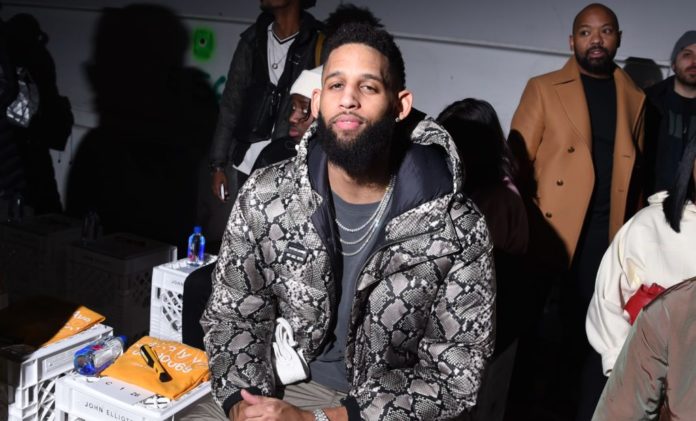Giving big-time deals to players has always been a risky move for NBA teams. When a player signs a contract, they are almost always guaranteed a salary – whether they actually perform well or not. No matter how well you research, plan, and carefully select players to ensure the deals work out, the team is strong, and returns are generated, there are always some ballers who turn out to be completely undeserving of the amount they’re being paid.
Since NBA free agency began in 1988, there have been several teams who have paid the price by selecting players who over-promised and under-delivered. While some teams have learned their lesson, there are others who seem to continuously fall into this trap.
Here, we will take a look at some of the worst contracts in NBA history. This list has been constructed around those players who produced a lack of ROI (return on investment) for their respective teams.
60. Jermaine O’Neal
Year: 2003
Team: Indiana Pacers
Contract: 7 years, $127 million
Return on investment: 284 G, 19.6 PPG, 9.1 RPG, 2.3 APG, 44.5 FG%
Jermaine O’Neal’s $127 million contract extension with the Pacers in 2003 seemed to make sense at first. He made four straight All-Star games and even finished third in MVP voting in the first season, behind Kevin Garnett and Tim Duncan. He was also one of the few players to get an average of 20 PPG and 10 PPG during the 2003-2004 season.
However, O’Neal was suspended for 15 games following his role in the Malice at the Palace brawl in November 2004. He missed 31 more games between 2005-2006 due to an injury. There was also a notable decline in his performance during the 2006-2007 season, and he missed even more games the following year. This was all the excuse his team needed to ship him off to the Toronto Raptors in 2009.
59. Eddie Robinson
Year: 2001
Team: Chicago Bulls
Contract: 5 years, $32 million
Return on investment: 144 G, 6.7 PPG, 2.7 RPG, 1.1 APG, 47.7 FG%
Although Eddie Robinson was from a small college and was primarily used as a reserve, then-Chicago Bulls General Manager Jerry Krause thought he had potential. Krause signed him to a $32 million contract and gave him more playing time, hoping he would eventually grow to become one of the team’s best players.
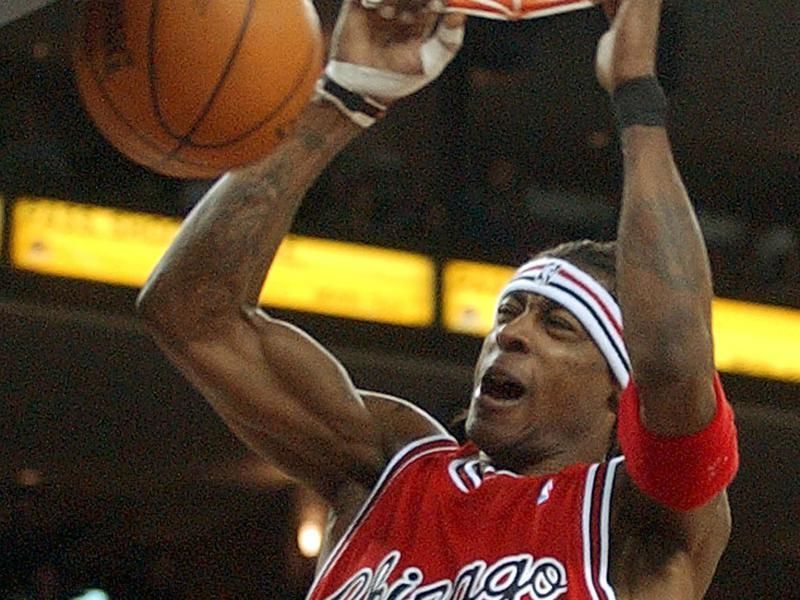
This decision proved to be a mistake. Even though he was generally healthy throughout his career, Robinson was often out of shape compared to other players. He also got into feuds with every single one of his coaches. When Jon Paxson took over as the Bulls’ General Manager in 2004, he bought out the remaining years of Robinson’s contract for $10 million, effectively ending his NBA career.
58. Chris Bosh
Year: 2014
Team: Miami Heat
Contract: 5 years, $118 million
Return on investment: 97 G, 20.0 PPG, 7.2 RPG, 2.3 APG, 46.4 FG%
While most of the deals on this list had questionable aspects to them from the beginning, this one actually made so much sense that no-one could’ve seen its failure coming. Bosh proved himself to be an outstanding player, becoming one of the Miami Heat’s “Big Three” who helped propel the team to the NBA finals for four consecutive years.
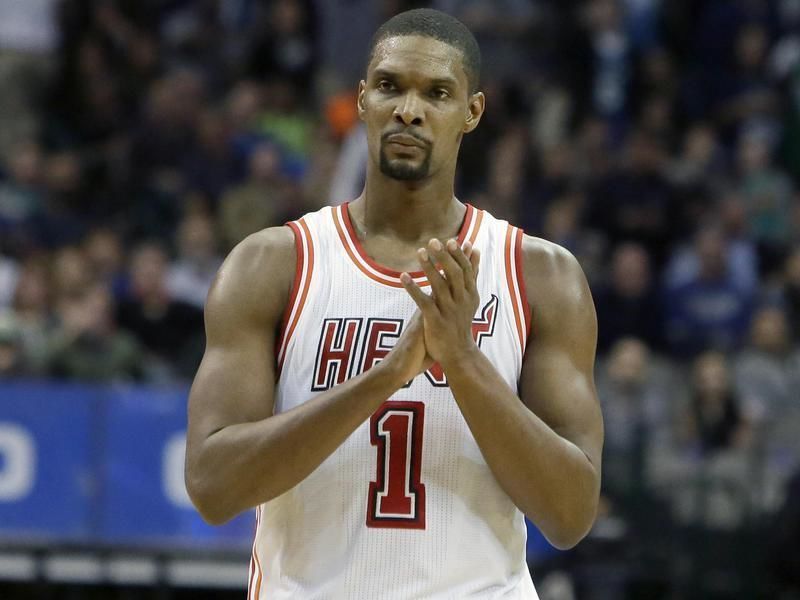
Unfortunately, blood clots found in his lungs forced him to retire in 2016, just one-and-a-half seasons after signing a $118 million dollar contract extension in 2014. He only managed to play a total of 97 games. The Miami Heat bought out the final two years of his contract for $52 million, and his jersey number was retired in 2019.
57. Brandon Roy
Year: 2010
Team: Portland Trail Blazers
Contract: 5 years, $82 million
Return on investment: 47 G, 12.2 PPG, 2.6 RPG, 2.7 APG, 42.3 FG%
Brandon Roy had a great start to his NBA career. He managed to score 20 points in his debut game in 2006 and garnered 127 of the 128 first-place votes for Rookie of the Year that same year. He continued being a great performer after his All-Star debut, scoring nearly 22 points each game during his third season.
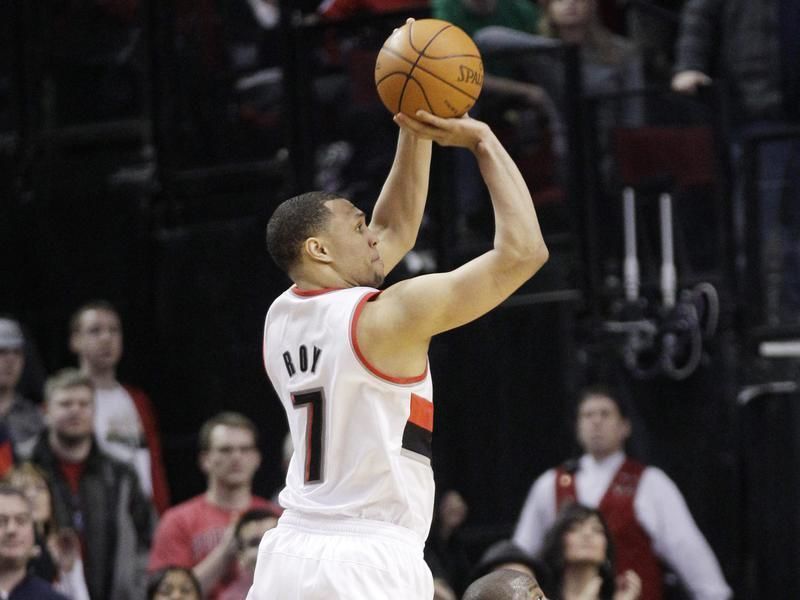
Unfortunately, his knee problems began to diminish his skills. During the 2010-2011 season, he only averaged 12.2 points, and he missed 35 games. Roy never got to play during the 2011-2012 season and was forced to retire directly after. He came out of retirement a year later to join the Minnesota Timberwolves but was only managed five games before his knee got the better of him once again.
56. Carmelo Anthony
Year: 2013
Team: New York Knicks
Contract: 5 years, $124 million
Return on investment: 263 G, 24.0 PPG, 7.1 RPG, 3.3 APG, 44.1 FG%
While it’s normal to see a decline in a player’s performance as time goes by, Carmelo Anthony’s slump came a little too fast. Although he was still a top-scorer when he signed a $124 million contract in 2013, his performance began to slip almost immediately after.
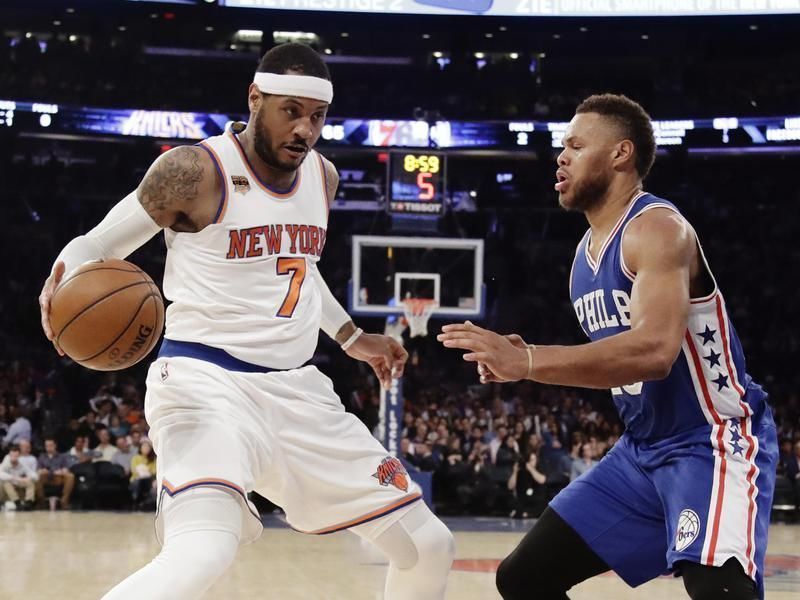
Aside from his poor performance which resulted in him becoming a bench player, Carmelo also got into a feud with then-team President Phil Jackson. This made the team even more eager to get rid of him than they already were. In 2017, he was traded to the Oklahoma City Thunder and the Knicks got three other players in exchange.
55. Bismack Biyombo
Year: 2016
Team: Orlando Magic
Contract: 4 years, $72 million
Return on investment: 163 G, 5.8 PPG, 6.3 RPG, 1.1 BPG, 52.4 FG%
Biyombo thrived during his one-year stint with the Toronto Raptors during the 2015-2016 season. His strong performance at a game against the Cavaliers in the Eastern Conference finals in 2016 caught the attention of the Orlando Magic and he signed a four-year, $72 million contract with the team that same year.
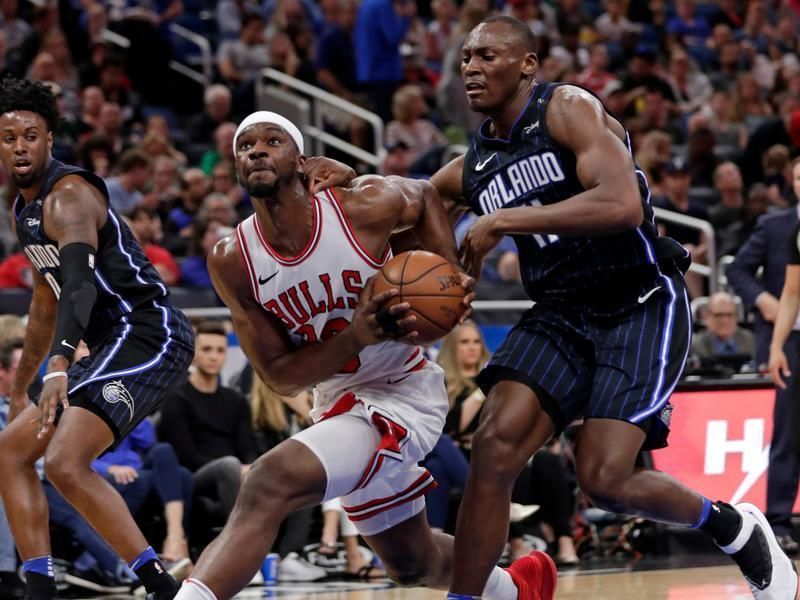
Unfortunately, Biyombo did not thrive as much as everyone had hoped. While he appeared to fit in well with the Raptors, his new team didn’t turn out to be such a great match. The team already had several strong players like Ibaka, Vucevic, and Gordon, rendering Biyombo useless.
54. Ian Mahinmi
Year: 2016
Team: Washington Wizards
Contract: 4 years, $64 million
Return on investment: 142 G, 4.8 PPG, 4.2 RPG, 0.7 APG, 54.0 FG%
Following a season with the Indiana Pacers where he averaged 9.3 points and 7.1 rebounds per game and became known as a fairly reliable rim protector, Ian Mahinmi signed a four-year, $64 million contract with the Washington Wizards in 2016.
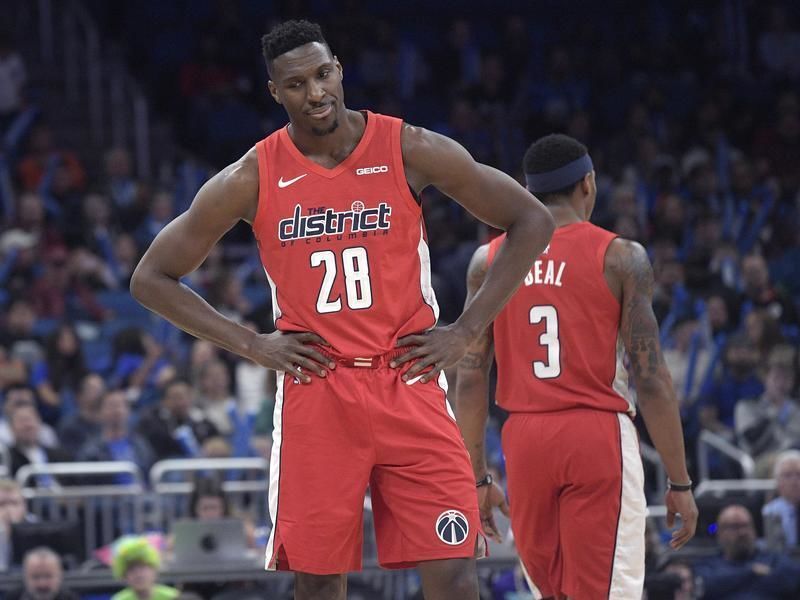
This deal, however, would eventually prove to be a poor decision on the Wizards’ part. In his first two seasons, Mahinmi never averaged higher than 5.6 points per game. He also proved to be an inefficient rebounder and was prone to turnovers. He also ended up missing far too many games due to a string of injuries and surgeries, making him a liability to the team.
53. Ryan Anderson
Year: 2016
Team: Houston Rockets
Contract: 4 years, $80 million
Return on investment: 138 G, 11.6 PPG, 4.8 RPG, 0.9 APG, 42.3 FG%
The Houston Rockets signed a four-year, $80 million deal with Ryan Anderson in 2016, hoping that he would be just what the team needed at the time. While he proved himself to be a wise investment during his first season with the Rockets, it didn’t take long before his performance took a completely different turn.
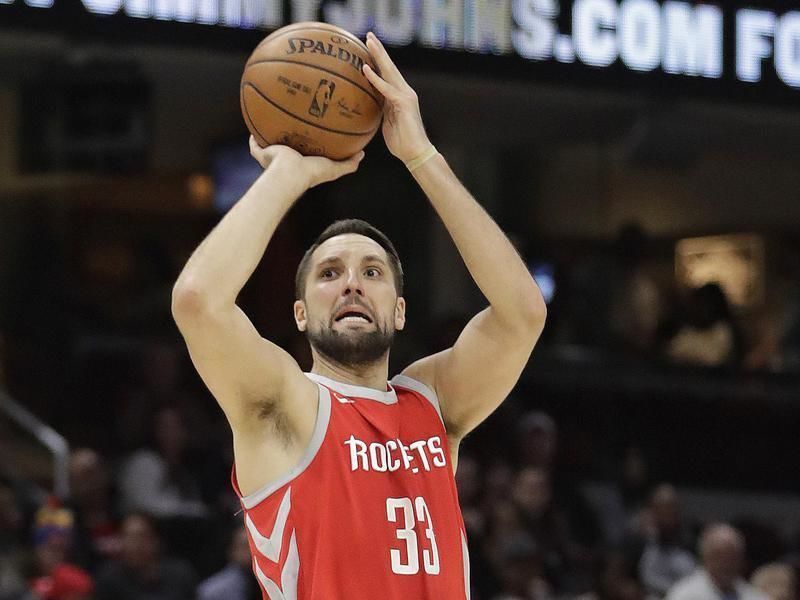
While the rest of the team stepped up and became more athletic, Anderson struggled to keep up. During the 2017-2018 season, he only had single-digit point averages, and only averaged 8.6 MPG in the 2018 Playoffs. After just two seasons with the Rockets, he was traded off to the Phoenix Suns.
52. Kevin Love
Year: 2018
Team: Cleveland Cavaliers
Contract: 4 years, $120 million
Return on investment: 22 G, 17.0 PPG, 10.9 RPG, 2.2 APG, 38.5 FG%
After losing LeBron James – undoubtedly one of the best players in NBA history – the Cleveland Cavaliers splurged on Kevin Love and signed a four-year, $120 million contract extension in 2018. While Love has proven himself to be a decent player, it’s become clear that he is no longer the star he once was.
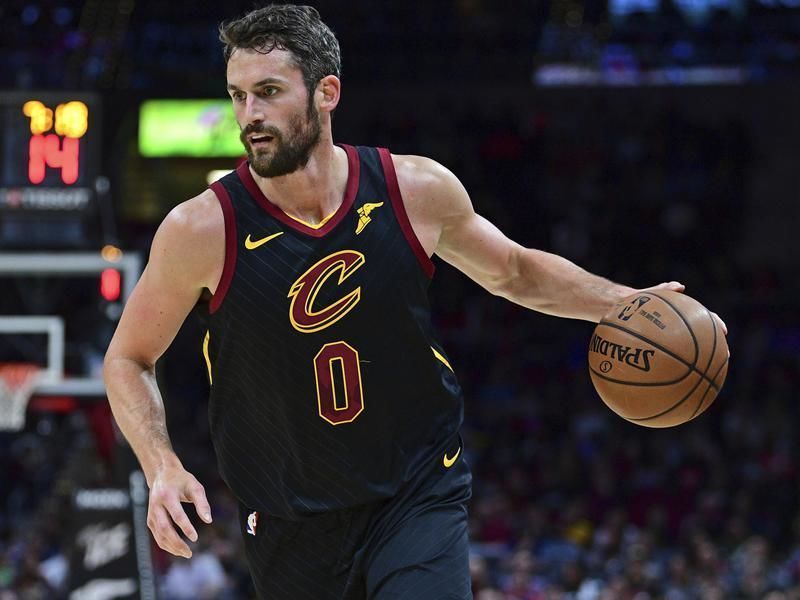
It didn’t take long for age to take its toll on Love’s body. His shooting and efficiency numbers took a hit, and his defensive game nosedived. He has also become prone to injury, missing all but 21 games in 2018 due to toe surgery. The Cavaliers are now stuck with him until 2023 unless they can trade him off to another team.
51. Harrison Barnes
Year: 2016
Team: Dallas Mavericks
Contract: 4 years, $95 million
Return on investment: 205 G, 18.4 PPG, 5.2 RPG, 1.6 APG, 44.6 FG%
Harrison Barnes proved to be a valuable recruit when the Golden State Warriors signed a deal with him in 2012. He became a key component of the team and worked well with the likes of Stephen Curry and Klay Thompson. Eventually, though, his performance on the court began to slip.
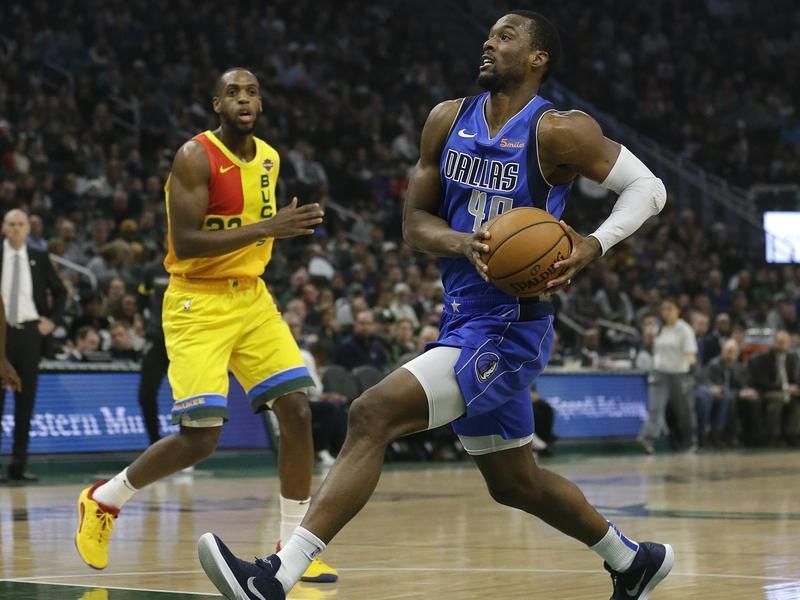
This decline didn’t deter the Dallas Mavericks from signing a deal with him in 2016. He managed to exceed everyone’s expectations during his first season. However, as time wore on, there were too many games where it felt like he offered little help to the team. He was eventually let go and sent off to Sacramento in his third year.
50. Marvin Williams
Year: 2016
Team: Charlotte Hornets
Contract: 4 years, $54.5 million
Return on investment: 229 G, 10.3 PPG, 5.6 RPG, 1.3 APG, 43.3 FG%
During the early years of his NBA career, Marvin Williams proved himself to be a versatile player, showing his worth as a useful rebounder and defender. The Charlotte Hornets thought he would be a valuable addition to the team, signing him to a $54.5 million deal in 2016.
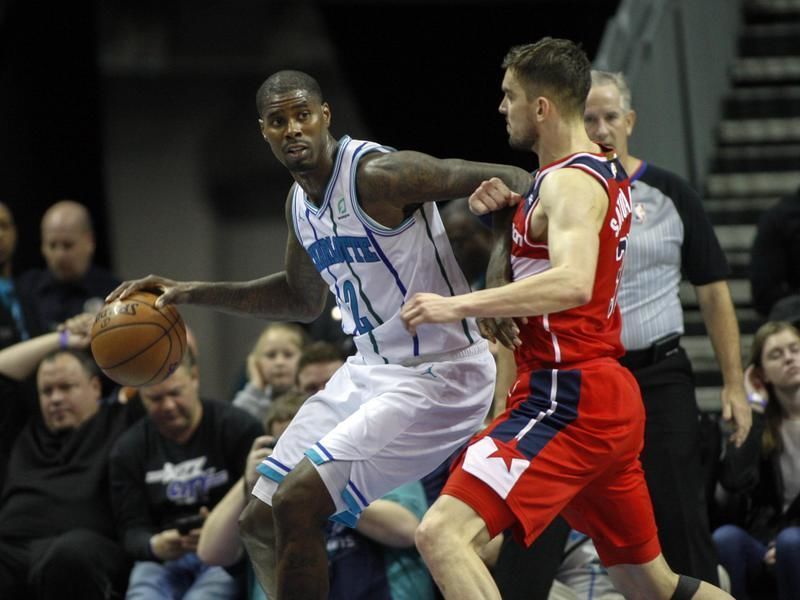
This deal hasn’t worked out as well as the team would have hoped. Since he joined them, Williams has merely become a finisher offensively, and not a very athletic one at that. He was paid the salary an above-average player when he clearly wasn’t one. At his age, there’s little hope for him to develop into one, either.
49. Allen Crabbe
Year: 2016
Team: Portland Trail Blazers
Contract: 4 years, $75 million
Return on investment: 79 G, 10.7 PPG, 2.9 RPG, 1.2 APG, 46.8 FG%
The Trail Blazers’ huge $75 million splurge on a four-year contract with Allen Crabbe in 2016 was one of many overpriced deals the team entered into in 2016. While he was a prized three-point shooter during his first few years with the Trail Blazers, it would later become clear that Crabbe’s contract was a poor decision on the Trail Blazers’ part.
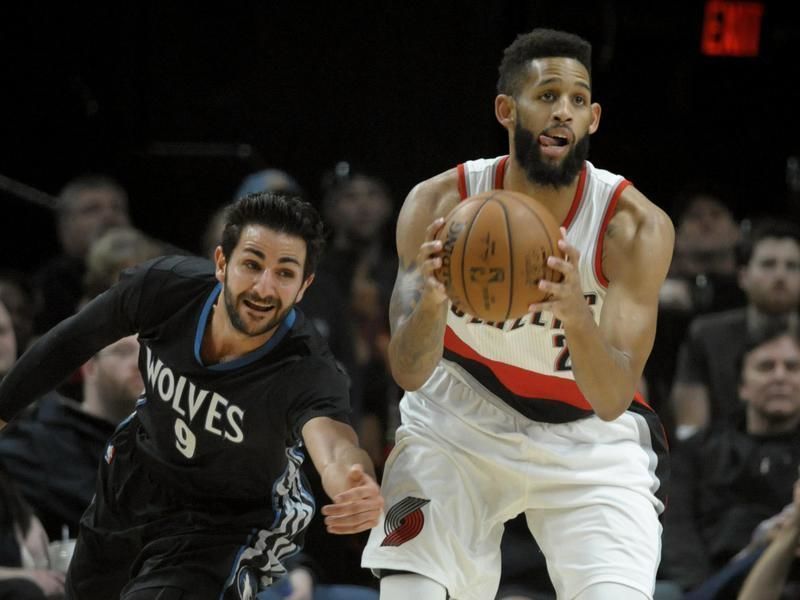
On the court, he would become visibly uncomfortable when he had to make important decisions, and the rest of the team didn’t depend on him as much. He let down teammates Damian Lillard and C.J. McCollum, and after establishing a pattern of lackluster performances, he was traded off to Brooklyn ( who offloaded him to Atlanta after just two seasons).
48. Tim Hardaway Jr.
Year: 2017
Team: New York Knicks
Contract: 4 years, $71 million
Return on investment: 103 G, 17.8 PPG, 3.7 RPG, 2.6 APG, 42.6 FG%
Tim Hardaway Jr. was originally drafted by the Knicks but was later traded off to the Hawks. After a rather impressive performance as a scorer in Atlanta, the Knicks thought that he would be a valuable addition to the team, signing a $71 million deal with him in 2017.
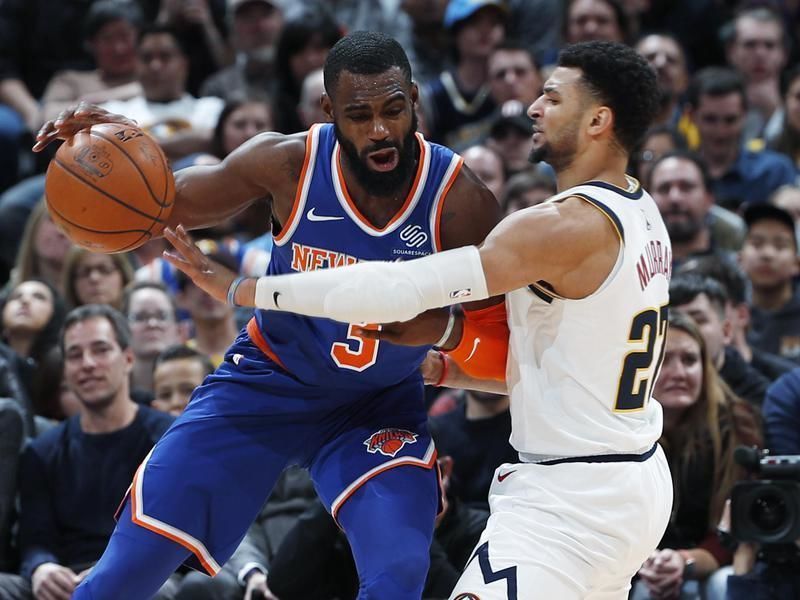
Oddly enough, his strong performance with the Hawks didn’t translate to anything even approaching a stellar performance during his stint with the Knicks. He was no longer the efficient player he once was. In 2018, the Knicks decided it was time to let him go (again) and traded him off to Dallas.
47. Brandon Knight
Year: 2015
Team: Phoenix Suns
Contract: 5 years, $70 million
Return on investment: 106 G, 15.2 PPG, 2.4 RPG, 3.7 APG, 40.8 FG%
Brandon Knight was a jack of all trades when he first joined the league. He seemed to show plenty of promise, but no one could really tell whether he was a point guard, a shooting guard, an undervalued player, or a complete disappointment. Even though he had his highs (like scoring an average of 17 points per game for three straight seasons), he certainly had his lows as well.
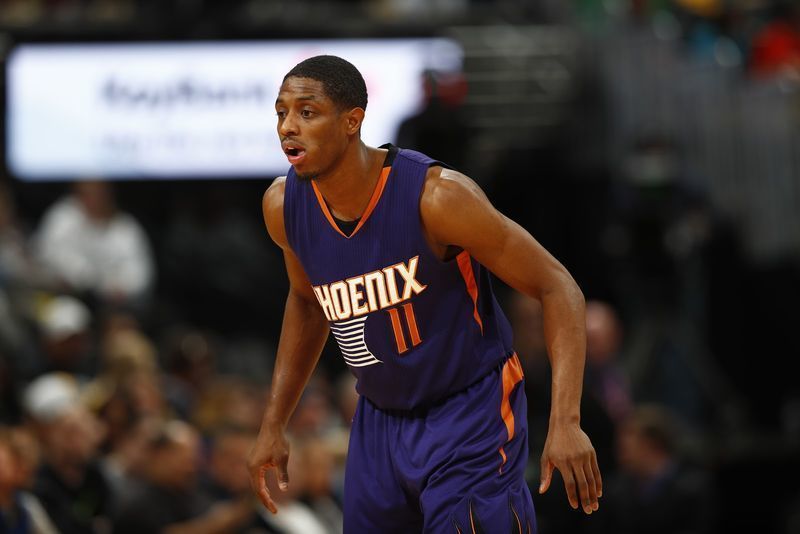
His performance was severely affected by injuries. His field-goal percentages took a sharp dive. He also missed far too many games during the first two years of his contract extension and suffered a serious injury during the 2017-2018 season. He was eventually traded off to the Houston Rockets in August of 2018.
46. Matthew Dellavedova
Year: 2016
Team: Milwaukee Bucks
Contract: 4 years, $38 million
Return on investment: 126 G, 6.1 PPG, 1.5 RPG, 4.2 APG, 39.1 FG%
Matthew Dellavedova was a valuable addition to the Cleveland Cavaliers. He helped propel the team to the NBA finals in 2015 and was also pivotal in the Cavaliers bringing home the title in 2016. The Milwaukee Bucks took notice and signed a $38 million deal with him that same year.
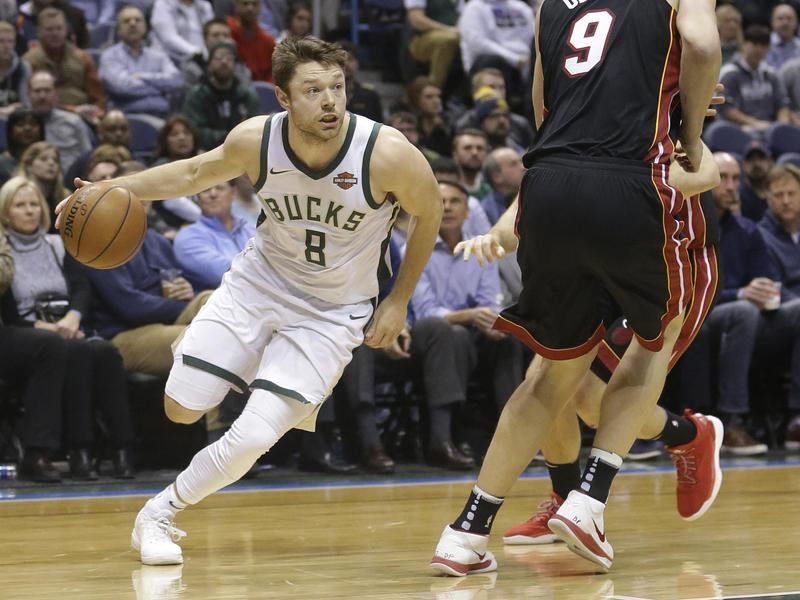
The Bucks were hoping Dellavedova would be just as valuable of an addition to their team, but they were quickly proven wrong. He wasn’t exactly a dependable finisher, had way too many turnovers, and became a rather irrelevant member of the team during his last 100 or so games. He was traded back to the Cavaliers in 2018.
45. Tyler Johnson
Year: 2016
Team: Miami Heat
Contract: 4 years, $50 million
Return on investment: 189 G, 12.2 PPG, 3.5 RPG, 2.8 APG, 42.8 FG%
Tyler Johnson was one of the players who struck gold during an interesting year when so many valuable contracts were being handed out. He signed a $50 million deal with the Miami Heat in 2016. With this deal, he was expected to stay on the team for four years.
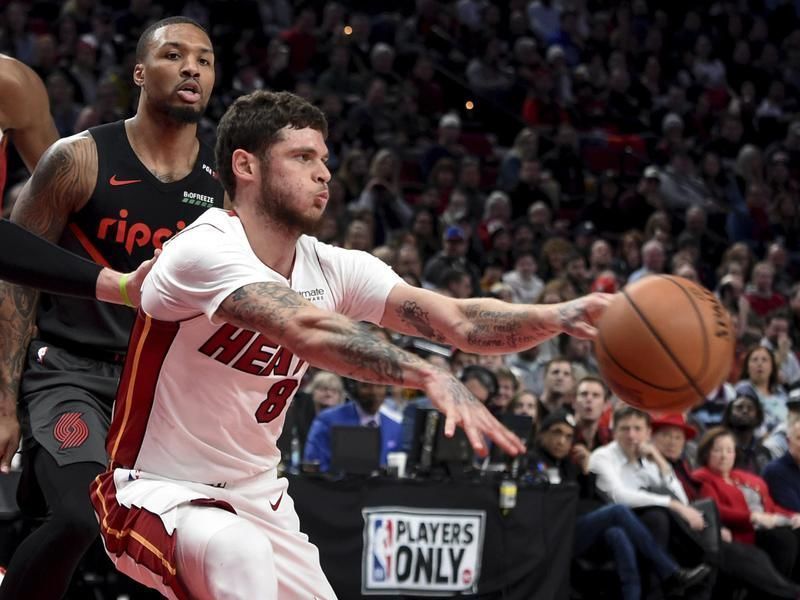
While he had a decent performance during the 2016-2017 season, his game took a dive immediately afterward. In a classic case of buyer’s remorse, Miami started looking into their options for trading him off. They were eventually successful in finding a taker, and he was handed over to the Phoenix Suns in February of 2019.
44. Reggie Jackson
Year: 2015
Team: Detroit Pistons
Contract: 5 years, $80 million
Return on investment: 258 G, 16.1 PPG, 2.7 RPG, 5.2 APG, 42.6 FG%
Reggie Jackson had a promising career during his time with the Oklahoma City Thunder. He was one of the three best players on the team, recording a career-high 32 points and 9 rebounds during a game against the Memphis Grizzlies in 2014. H e was eventually traded off to Detroit in February of 2015.
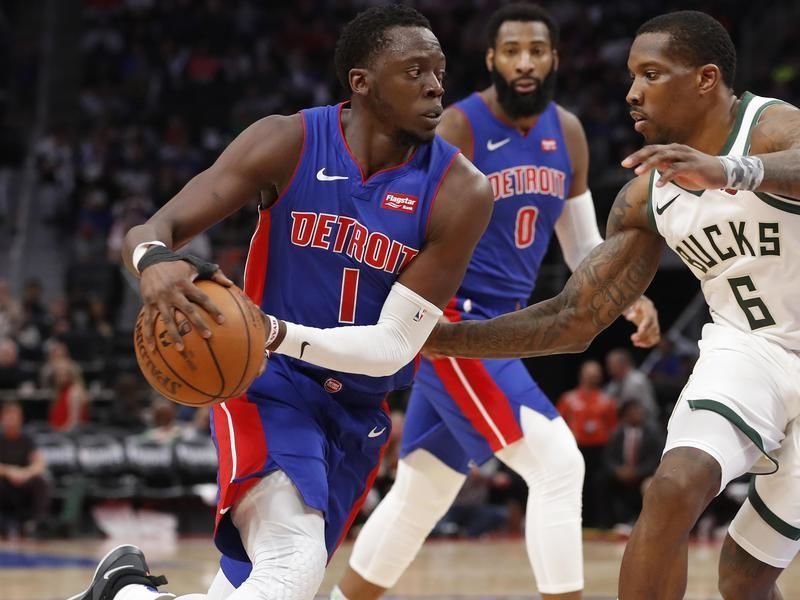
During his first season with the Pistons, Jackson was clearly a worthy investment. He had a spectacular performance in 27 games, with an average of 18.8 points and 6.2 assists per game. In the 2016-2017 season, however, his performance took a dramatic downturn. While he remains on the team to this day, recent trade rumors have certainly affected his confidence.
43. John Wall
Year: 2017
Team: Washington Wizards
Contract: 4 years, $170 million
Return on investment: 73 G, 20.0 PPG, 3.6 RPG, 9.2 APG, 43.1 FG%
John Wall signed an eye-popping $170 million deal with the Washington Wizards. While he has proven himself to be a top-level player with game-winning talent during his eight-year career, the size of this deal still raised some eyebrows for various reasons.
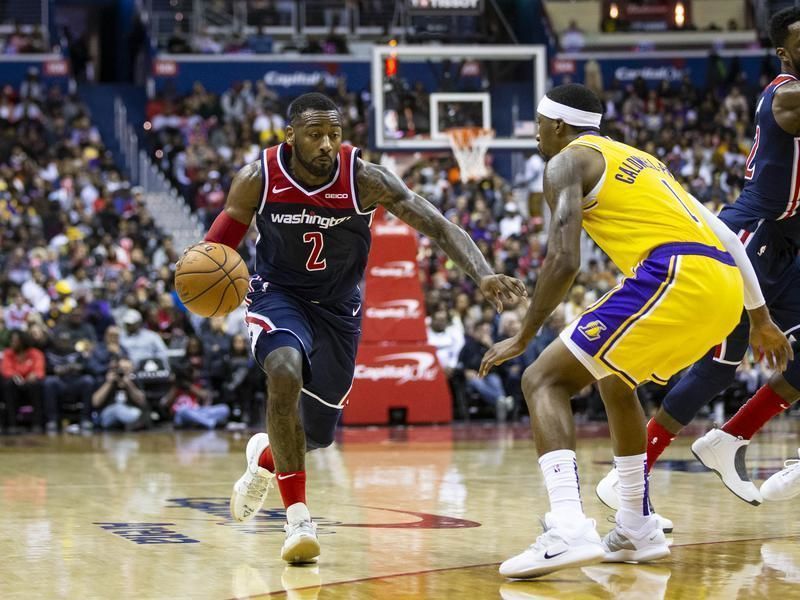
Wall’s performance had been steadily slipping for two straight seasons and had gained a reputation for showing up out of shape. A heel surgery caused him to pull out of the 2018-2019 season in December, and another injury that he suffered in February might result in him not making an appearance at all in the 2019-2020 season.
42. Andrew Wiggins
Year: 2017
Team: Minnesota Timberwolves
Contract: 5 years, $148 million
Return on investment: 155 G, 17.9 PPG, 4.6 RPG, 2.2 APG, 42.5 FG%
Following a breakout season that allowed him to enjoy career-highs across the board, Andrew Wiggins signed a $148 million deal with the Timberwolves in 2017. He was a versatile scorer who had a strong defensive game and showed plenty of promise. It definitely seemed like he would eventually grow to become one of the greats.
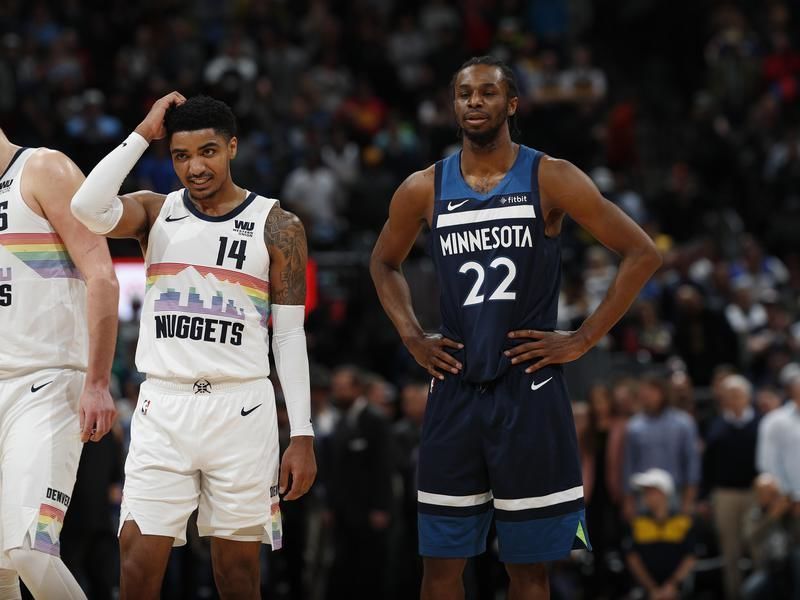
However, unlike many of the NBA’s top players, Andrew Wiggins is inconsistent. He was mediocre at best in the 2018-2019 season and has become known for taking too many shots and being an inefficient player overall. It has become clear that he simply isn’t going to be the superstar that everyone thought he would be when he first signed this deal.
41. Chris Paul
Year: 2018
Team: Houston Rockets
Contract: 4 years, $160 million
Return on investment: 116 G, 17.1 PPG, 5.0 RPG, 8.0 APG, 44.1 FG%
After coming quite close to defeating the Golden State Warriors in the Western Conference finals during the previous season, the Houston Rockets decided that they didn’t want to let Chris Paul go. They signed a four-year, $160 million deal with him in 2018.
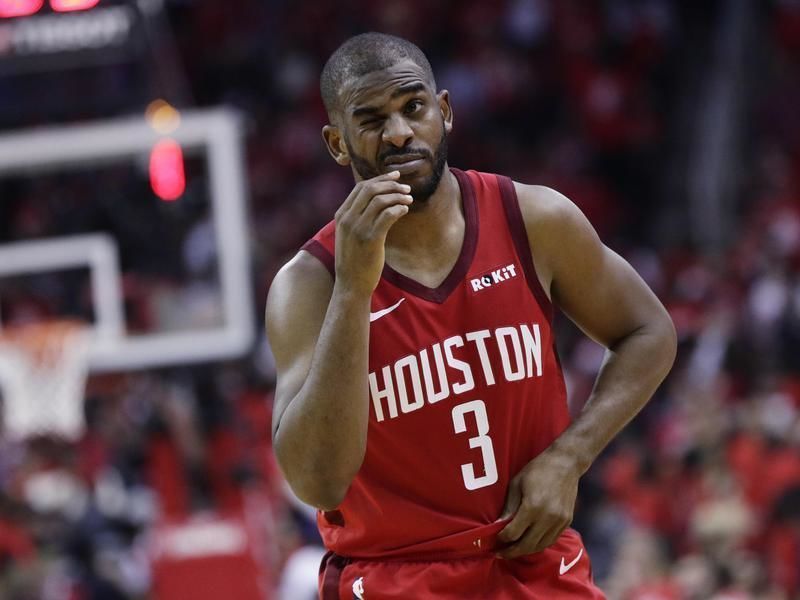
While Chris Paul remains one of the NBA’s best-ever point guards, he has become rather inconsistent in recent years due to a string of unfortunate injuries. The Rockets seem to have regretted this deal as he was traded off to the Oklahoma City Thunder in 2019.
40. Nicolas Batum
Year: 2016
Team: Charlotte Hornets
Contract: 5 years, $120 million
Return on investment: 286 G, 12.8 PPG, 5.6 RPG, 5.1 APG, 42.1 FG%
Marvin Williams’ $54.5 million deal in 2016 wasn’t the only disappointing contract the Hornets signed that year. Nicolas Batum signed an even larger deal with the team in 2016, and it wasn’t really hard to see why at the time. Batum had proven himself to be a highly versatile player, eventually becoming second in command to Kemba Walker.
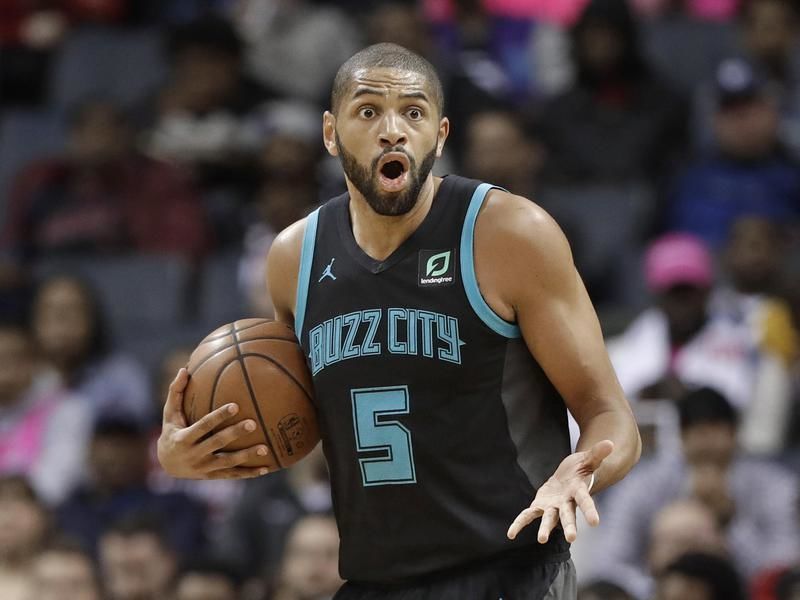
Unfortunately, it didn’t take long before the Hornets came to regret the contract. Batum’s efficiency has fallen compared to his strong performance during the 2013-2014 season. Although there has been some recent improvement, it still doesn’t justify the amount he is being paid.
39. Dion Waiters
Year: 2017
Team: Miami Heat
Contract: 4 years, $52 million
Return on investment: 120 G, 14.0 PPG, 6.7 RPG, 2,9 APG, 41.4 FG%
Following previous stints with the Cleveland Cavaliers and the Oklahoma City Thunder, Dion Waiters joined the Miami Heat in 2016, where he proved to be an effective scorer and managed to post impressive career numbers. In 2017, he re-signed a deal with the Heat, this time worth $52 million.
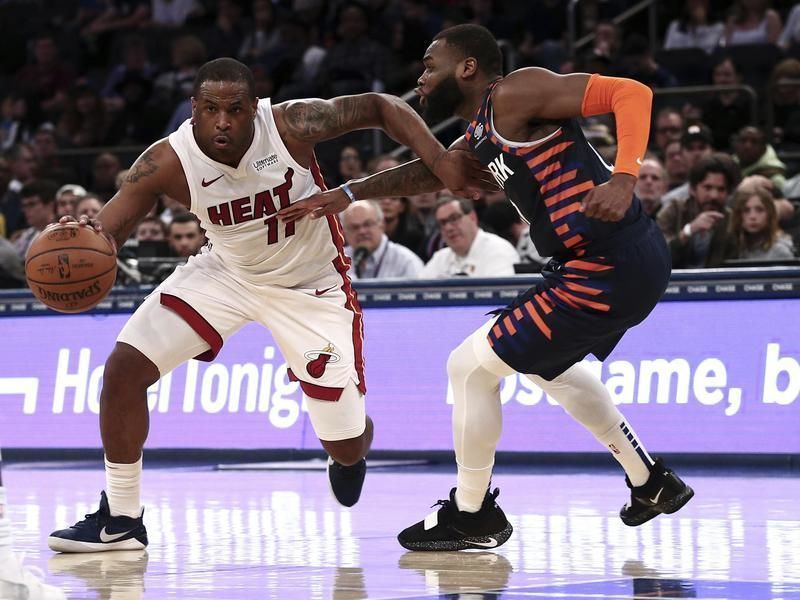
Eventually, it became obvious that the Heat wasn’t getting their money’s worth. He would later miss almost an entire season after undergoing surgery, and an injury caused Waiters to miss the first month of the 2017-2018 season. When he returned, his game had fallen to a mediocre level. Waiters averaged 10.7 points and 2.7 assists per game. He has been mostly out of shape ever since.
38. Stephon Marbury
Year: 2003
Team: Phoenix Suns
Contract: 4 years, $76 million
Return on investment: 34 G, 20.8 PPG, 3.1 RPG, 8.3 APG, 43.2 FG%
Stephon Marbury was a phenomenal player during his time with the Minnesota Timberwolves. He worked well with Kevin Garnett, and it seemed like they were an unstoppable duo. However, Marubury’s relationship with Garnett eventually soured and he signed a deal with the Phoenix Suns in 2003.
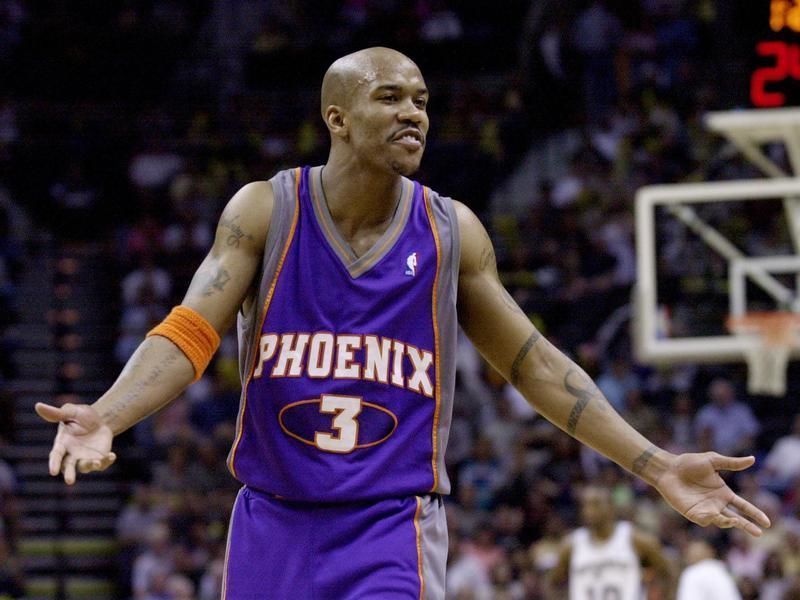
In his first two seasons, he managed to score an impressive average of 20 points per game. Unfortunately, the moody Marbury did not get along well with other people in the organization and lasted only half a season. He was traded off to the New York Knicks but ran into some problems there as well. He eventually took a year off from basketball before joining the Chinese Basketball Association (CBA) in 2010.
37. Kenyon Martin
Year: 2004
Team: Denver Nuggets
Contract: 7 years, $92 million
Return on investment: 371 G, 12.3 PPG, 7.0 RPG, 1.9 APG, 49.6 FG%
Kenyon Martin showed some great potential during his time with the New Jersey Nets. The Denver Nuggets thought he would be a great addition to the team, and shelled out a staggering amount to sign a long seven-year contract with him in 2004. New Jersey Nets fans were definitely sad to see him go.
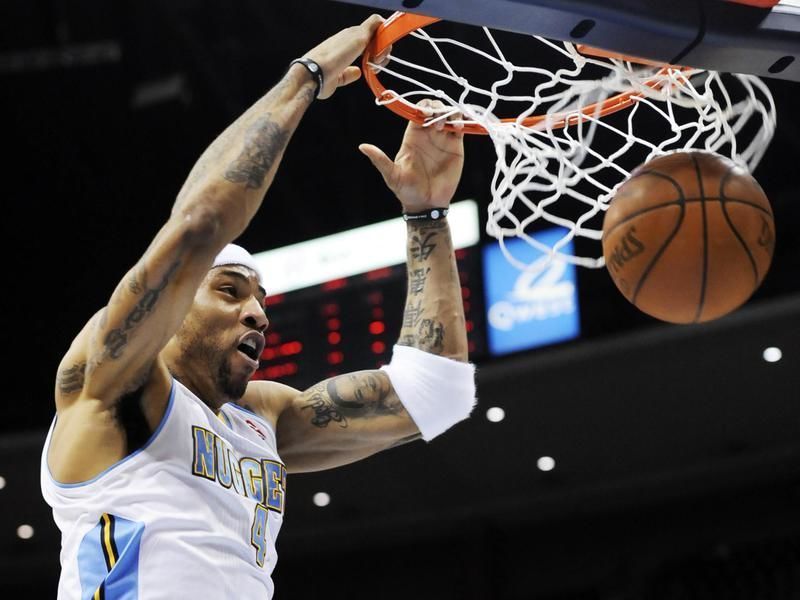
Although he helped the Nuggets land a spot in the Western Conference finals, his knee injuries later affected his performance and derailed his career. He missed 118 games throughout his first four seasons due to surgeries on both of his knees, and he simply failed to live up to the hype. He would go on to play for one team in China and three more NBA teams before retiring in 2015.
36. Hassan Whiteside
Year: 2016
Team: Miami Heat
Contract: 4 years, $98 million
Return on investment: 203 G, 14.5 PPG, 12.4 RPG, 1.9 BPG, 55.7 FG%
After emerging from a two-year break from the NBA, Whiteside signed a contract with the Miami Heat and quickly became a star player thanks to his strong defense. After the Heat’s “big three” era, he appeared to be the new face of the team.
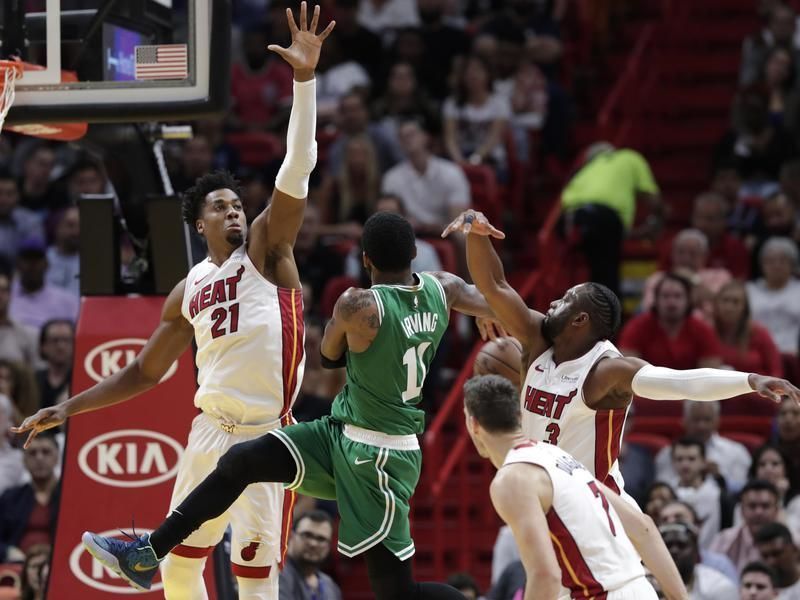
After just one year, however, Whiteside’s performance waned. Other than his strong defense, his skills were a poor fit for the team and the evolving league as a whole. Coach Erik Spoelstra eventually lost faith in him, keeping him on the court for just 25 minutes per game. After five seasons with the Miami Heat, he was finally traded off to the Portland Trail Blazers in July of 2019.
35. Shawn Kemp
Year: 1997
Team: Cleveland Cavaliers
Contract: 7 years, $107 million
Return on investment: 426 G, 12.2 PPG, 6.7 RPG, 1.4 APG, 43.4 FG%
Shawn Kemp joined the Cleveland Cavaliers in 1997 after failing to secure an extension with the Sonics. He continued to show a strong performance during his first few years with the Cavaliers, proving that he was still the same dominant force that everyone saw in the first half of his career.
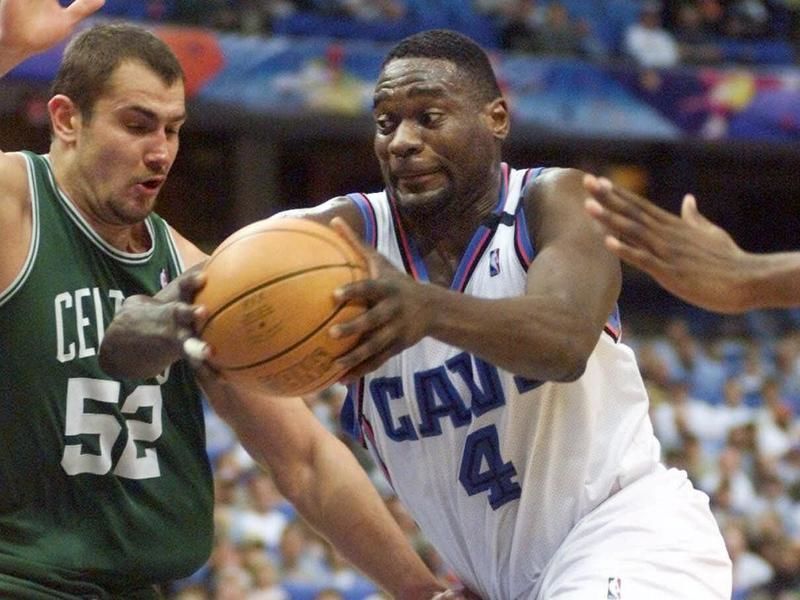
However, by his fourth season with the Cavaliers, he was a shadow of his former self. He became increasingly overweight and appeared unmotivated on several occasions. He lacked the drive that he once had during his time with the Seattle SuperSonics and his performance plummeted. He was handed over to the Portland Trailblazers in 2000.
34. Austin Croshere
Year: 2001
Team: Indiana Pacers
Contract: 7 years, $51 million
Return on investment: 511 G, 6.7 PPG, 3.9 RPG, 1.0 APG, 40.1 FG%
Even though he only averaged 6.8 points per game throughout his NBA career and was generally an unremarkable player, Austin Croshere’s unusually strong performance in the 2000 NBA playoffs impressed the Pacers enough that he was later rewarded with a seven-year, $51 million contract.
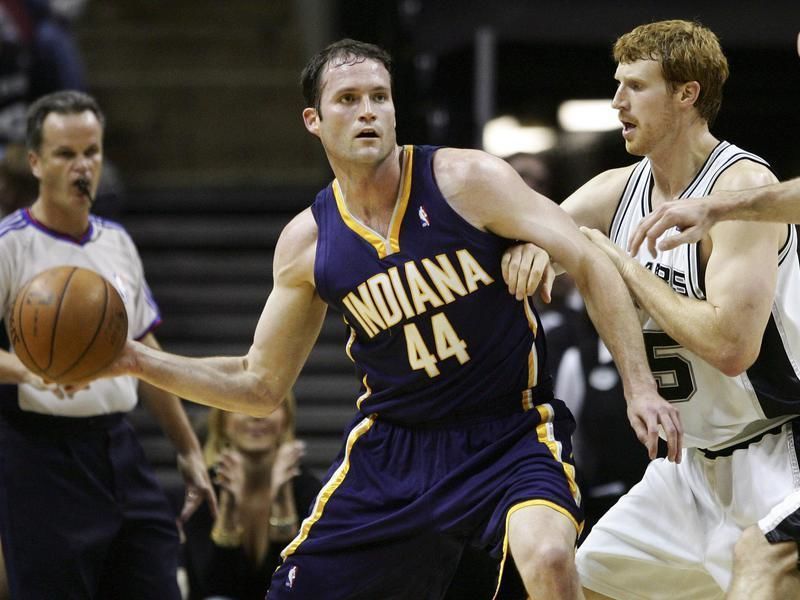
The following year, his luck ran out. He never really had another impressive performance after the 2000 playoffs, and the Pacers were left with a mediocre player who was grossly overpaid. He was traded off to the Dallas Mavericks in 2006 and joined a few more teams after that. Eventually, he found his stride again as a sports commentator and pre and post-game analyst for Fox Sports Indiana in 2010.
33. Jayson Williams
Year: 1998
Team: New Jersey Nets
Contract: 6 years, $90 million
Return on investment: 30 G, 8.1 PPG, 12.0 RPG, 2.1 BPG, 44.5 FG%
Although his NBA career had a rather slow start, Jayson Williams eventually grew from being a mere bench warmer to becoming a player on the All-Star team. He had a stellar performance during the 1997-1998 season and went on to sign a $90 million contract with the New Jersey Nets that same year.
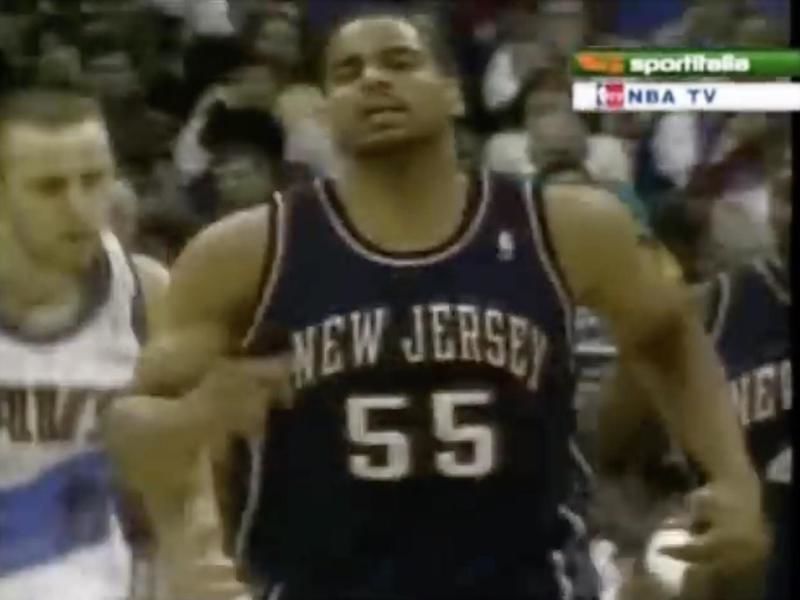
Just 30 games into his contract, however, his career came to a sudden end. Williams had a collision with teammate Stephon Marbury during a game against the Atlanta Hawks and broke his right leg. He had to undergo surgery, which caused him to miss the entire 1999-2000 season. He formally announced his retirement from the NBA in June of 2000.
32. Steve Francis
Year: 2002
Team: Houston Rockets
Contract: 6 years, $85 million
Return on investment: 160 G, 18.8 PPG, 5.8 RPG, 6.2 APG, 42.0 FG%
Following a fairly decent performance that began when he joined the Houston Rockets in 1999 and earned a Rookie of the Year award in 2000, Steve Francis signed a six-year, $85 million contract extension with the Rockets in 2002.
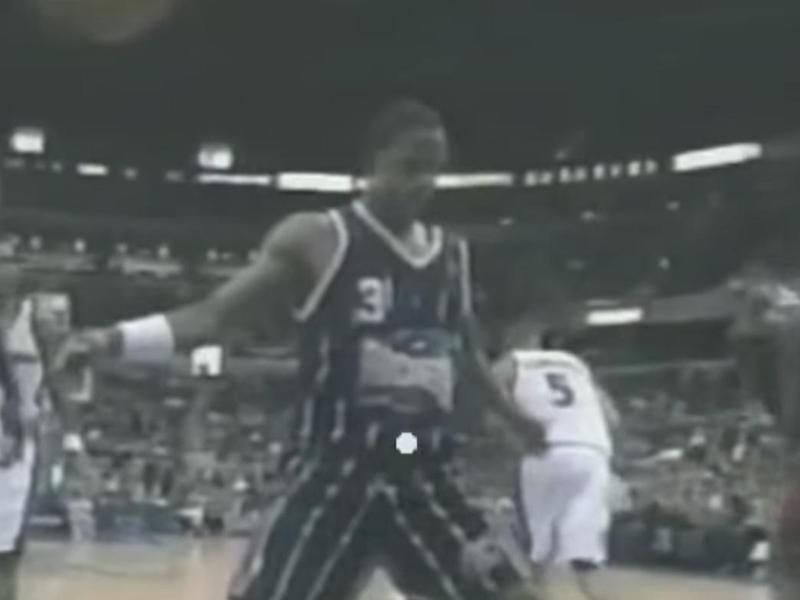
After the signing of this contract, things went south for Francis. The team struggled to win their games and had a mediocre performance in the Western Conference of the 2002-2003 season. When Jeff Van Gundy took over as coach, his methods did not fit in well with Francis’ style of play. After clashing with Van Gundy, Francis was handed over to the Orlando Magic before being traded off two more times and briefly joining the Chinese Basketball Association.
31. Evan Turner
Year: 2016
Team: Portland Trail Blazers
Contract: 4 years, $70 million
Return on investment: 217 G, 8.0 PPG, 3.8 RPG, 3.0 APG, 44.3 FG%
Evan Turner was one of those players who benefitted from 2016 spike in the salary cap. He was given a four-year, $70 million contract by the Portland Trail Blazers, a deal which shocked even Turner himself. While he and a few others close to him were happy about it, there were others who were a bit more skeptical.
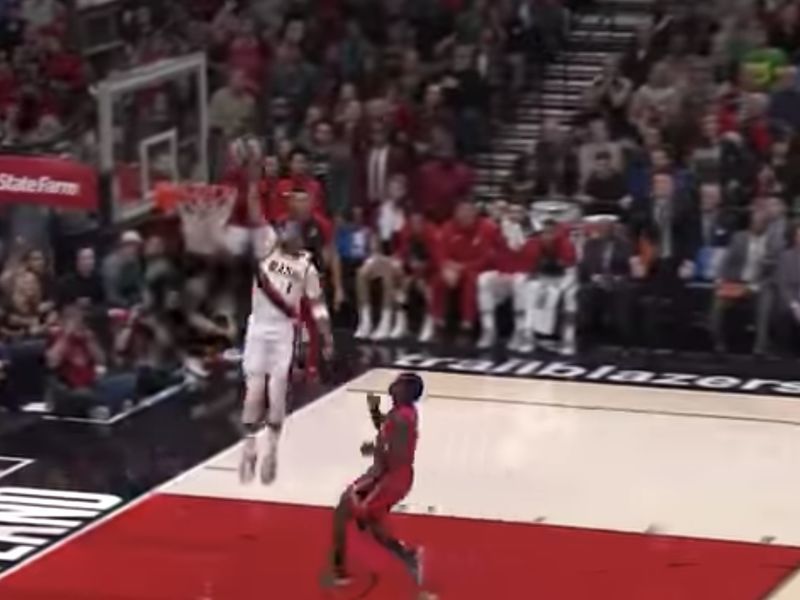
As it turns out, Turner wasn’t exactly deserving of this mammoth deal. He was an average player at best and then went on to suffer an injury in February 2014 which caused him to miss 14 games. In June of 2019, he was traded off to the Atlanta Hawks in exchange for Kent Bazemore.
30. Erick Dampier
Year: 2004
Team: Dallas Mavericks
Contract: 7 years, $73 million
Return on investment: 424 G, 6.5 PPG, 7.6 RPG, 0.7 APG, .591 FG%
Throughout the first decade of his NBA career, Erick Dampier became known as a strong defender and rebounder. When the Mavericks signed a $73 million deal with him in 2004, they were hoping he would continue his performance and give the team a boost.
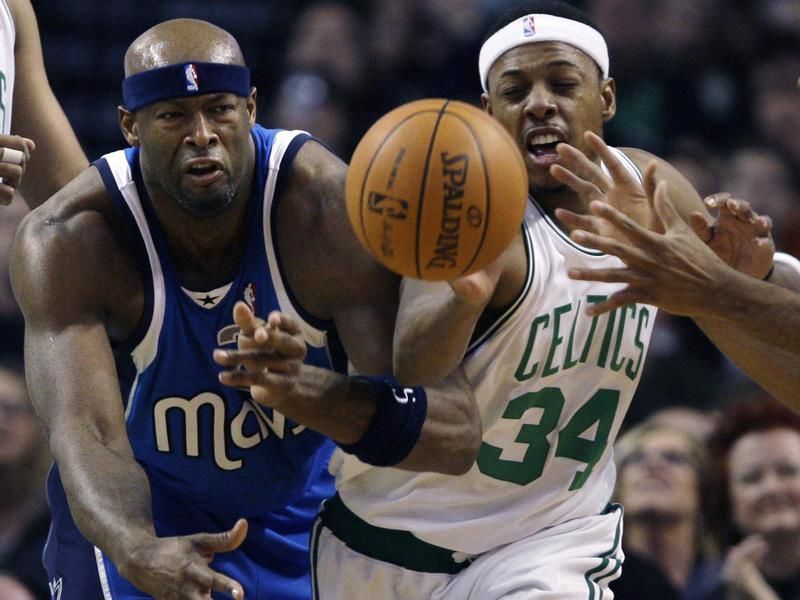
The Mavericks relied on Dampier, hoping he would bring the same performance level as he did during his final year with the Golden State Warriors. Unfortunately, this never happened throughout his six seasons with the Mavericks. He was let go in 2010 and went on to play for the Miami Heat from 2010-2011, and the Atlanta Hawks in 2012.
29. Peja Stojakovic
Year: 2006
Team: New Orleans Hornets
Contract: 5 years, $64 million
Return on investment: 219 G, 14.3 PPG, 4.0 RPG, 1.3 APG, .418 FG%
Peja Stojakovic is known as one of the best and most effective shooters in NBA history. He performed rather exceptionally during his time with the Sacramento Kings, where he managed to reach career highs. In 2006, he signed a deal with the New Orleans Hornets.
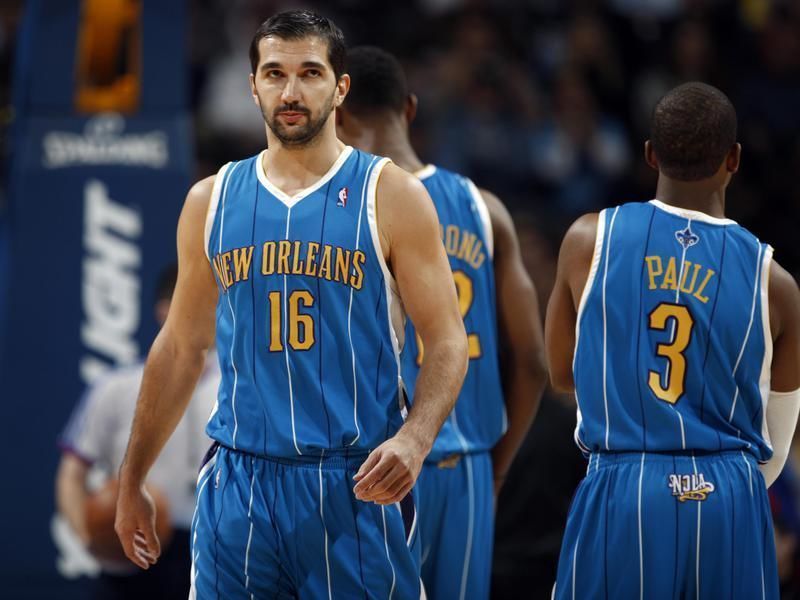
While he did manage to perform well early on, his injuries caused him to only play the first 13 games of the 2006-2007 season. His performance continued to be affected and his per-game averages dropped each season. In 2010, he was handed over to the Toronto Raptors.
28. Grant Hill
Year: 2000
Team: Orlando Magic
Contract: 7 years, $93 million
Return on investment: 200 G, 16.4 PPG, 5.0 RPG, 3.1 APG, .500 FG%
Grant Hill is one of the few players on this list who actually deserved his contract. He was a star player for the Detroit Pistons throughout the mid to late 1990s, averaging 21.6 points, 7.9 rebounds, and 6.3 assists per game. When he signed a deal with the Orlando Magic in 2000, everyone thought that he would maintain his solid reputation.
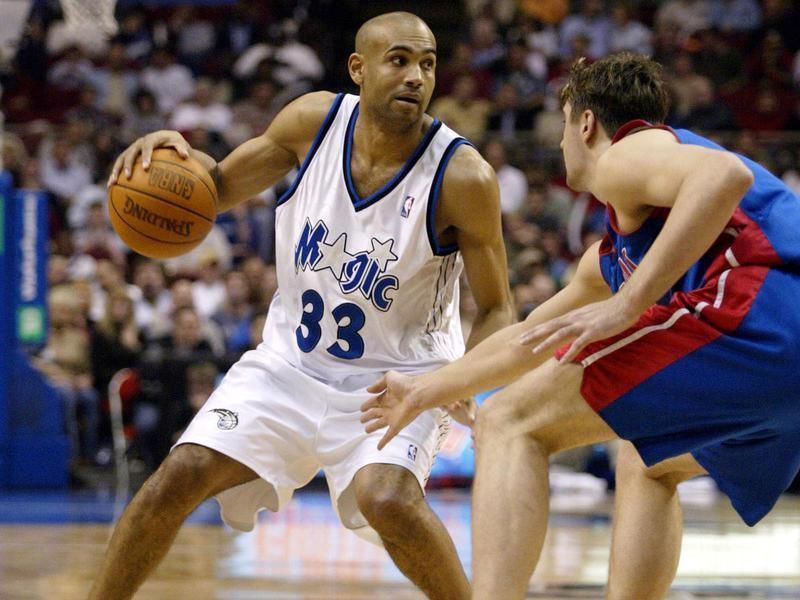
Unfortunately, Hill suffered from a serious ankle injury in 2000 which took him five years to recover from. By the time he was well enough to hit the court again, he was no longer the same player that he used to be during his time with the Pistons. He went on to play for the Phoenix Suns and Los Angeles Clippers before announcing his retirement in 2013.
27. Elton Brand
Year: 2008
Team: Philadelphia 76ers
Contract: 5 years, $80 million
Return on investment: 263 G, 12.7 PPG, 7.2 RPG, 1.4 APG, .488 FG%
Elton Brand signed an $80 million deal with the Philadelphia 76ers in 2008. Prior to joining the 76ers, he had two successful seasons with the Chicago Bulls and was a star player for the Los Angeles Clippers. He posted career-highs during the 2005-2006 season and led the Clippers to a 47-35 record.
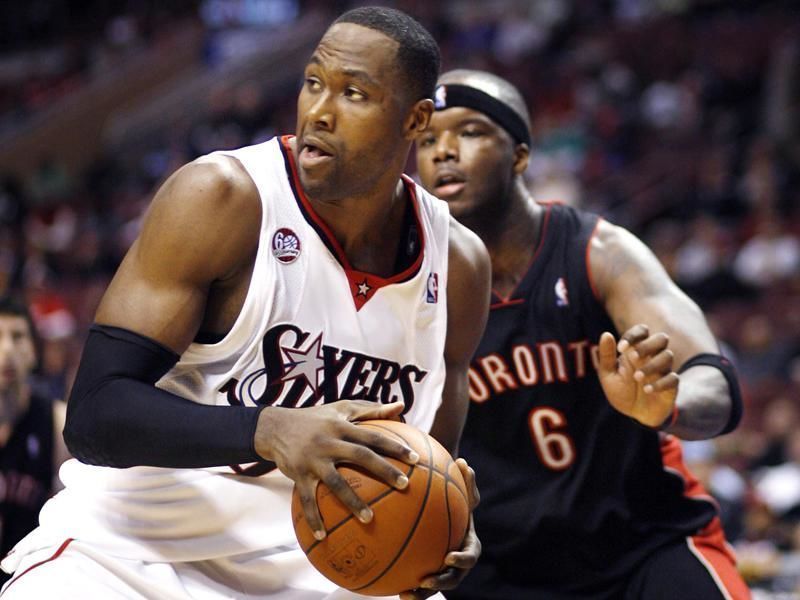
He ended up missing most of the 2007-2008 season due to an injury. Despite this red flag, the Philadelphia 76ers accepted him back into their team in 2008. Once he started playing for the 76ers, it became clear that his injury had taken its toll on his performance. He never got to play an entire season for the team and was eventually traded to the Dallas Mavericks in 2012.
26. Josh Smith
Year: 2013
Team: Detroit Pistons
Contract: 4 years, $54 million
Return on investment: 105 G, 15.5 PPG, 6.9 RPG, 3.5 APG, .413 FG%
For a time, Josh Smith was one of the Atlanta Hawks’ best players. He posted impressive stats between 2006 and 2007, with an average of 16.4 points, 8.6 rebounds, 3.3 assists, 1.4 steals, and 2.9 blocks per game. His strong performance also earned him several distinctions, including being the youngest player to break the 500 career block mark.
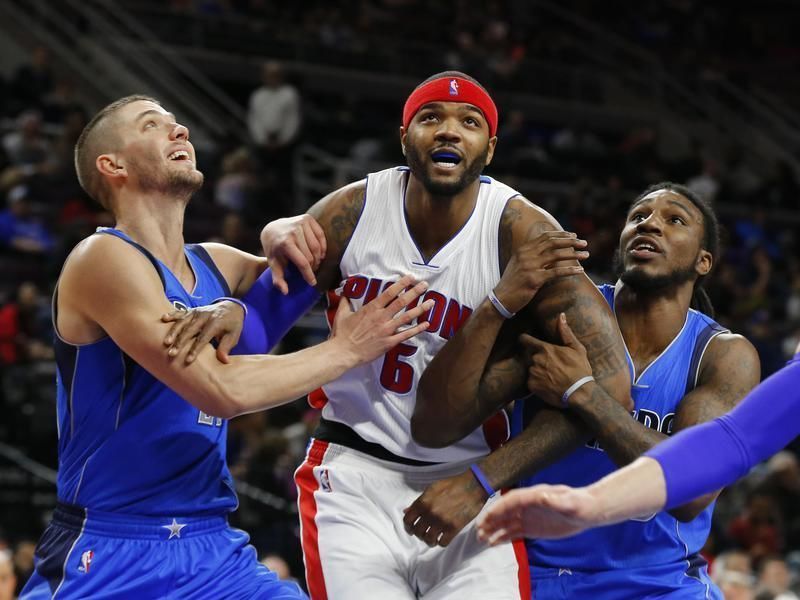
When he joined the Pistons in 2013, everyone assumed he would be able to maintain the same level of strength. However, his athleticism had already begun to decline. His shooting percentage decreased by five points compared to how it was during his stint with the Hawks. He became trigger-happy with his shots and made poor decisions which cost the team dearly. He was eventually released by the Pistons in 2014.
25. Eddy Curry
Year: 2005
Team: New York Knicks
Contract: 6 years, $60 million
Return on investment: 222 GP, 15.2 PPG, 5.8 RPG, 0.5 APG, .563 FG%
Despite controversies surrounding his health, the New York Knicks took a gamble on Eddy Curry and offered him a six-year, $60 million deal in 2005. He showed plenty of promise and proved himself to be a valuable addition to the team, averaging 19.5 points and 7 rebounds a game; all this at just 24 years of age.
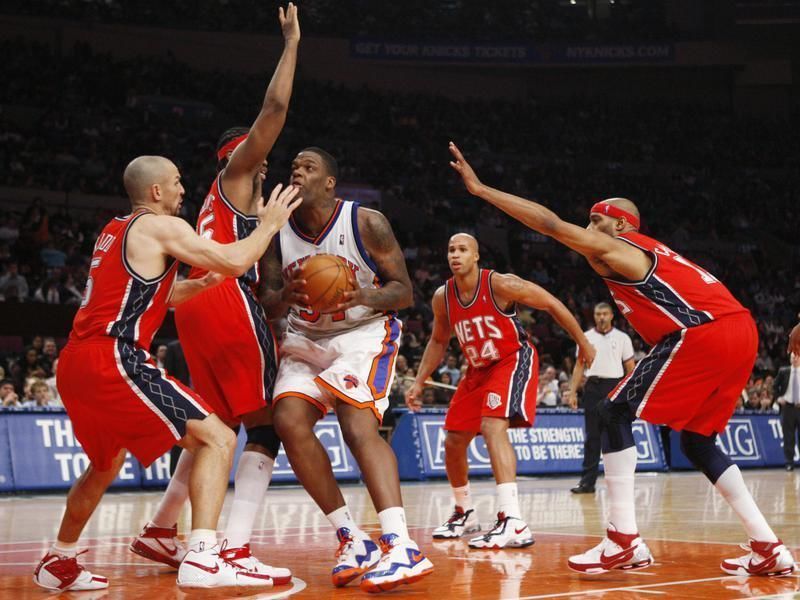
During his time with the Knicks, Curry was affected by a string of injuries and health issues, beginning with a 2007 hospitalization due to an undisclosed illness. He was never quite able to get back into shape, and he began spending less time on the court. In 2011, he was traded off to the Minnesota Timberwolves.
24. Jon Koncak
Year: 1989
Team: Atlanta Hawks
Contract: 6 years, $13.1 million
Return on investment: 504 G 3.8 PPG, 4.5 RPG, 1.2 APG, .455 FG%
While Jon Koncak’s $13.1 million deal seems like a modest amount compared to the mega deals of the 21st century, it was certainly a huge amount at the time. In comparison, the brilliant Magic Johnson made around $12 million dollars throughout Koncak’s contract period. Koncak also outearned Michael Jordan and Larry Bird. Even Koncak himself found this deal hard to justify, saying as much in an interview with Sports Illustrated.
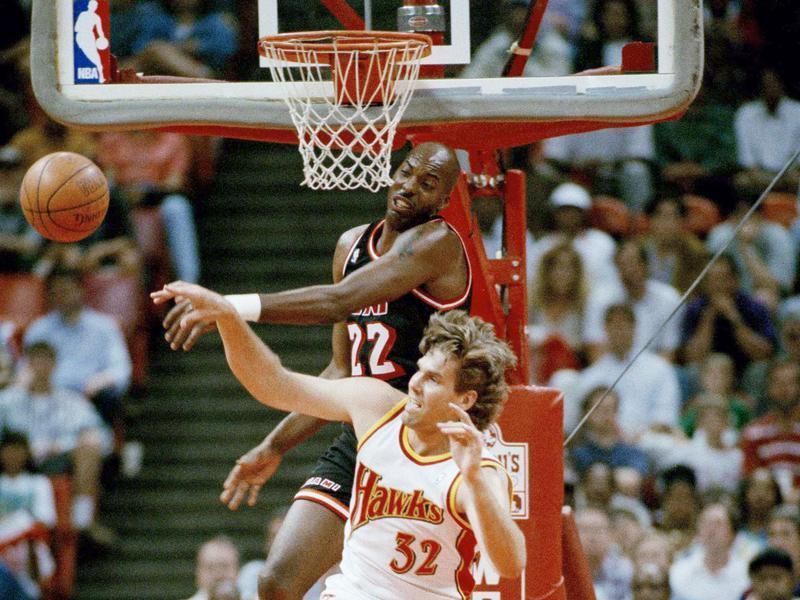
Koncak’s subsequent performance later showed that his $13.1 million deal was, in fact, excessive. The contract was so outrageous and unmatched to his actual abilities that it even earned him the nickname “Jon Contract.” This event did have one good side effect though: it inspired Shaquille O’Neal to choose a basketball career over a football career because of the money he saw he could make.
23. Darius Miles
Year: 2004
Team: Portland Trail Blazers
Contract: 6 years, $48 million
Return on investment: 145 G, 13.1 PPG, 4.6 RPG, 2.0 APG, .487 FG%
Darius Miles was known in his community as a phenomenal high school basketball player. He was drafted straight out of high school by the Los Angeles Clippers in 2000 and went on to join the Cleveland Cavaliers in 2002. Although he was never quite able to unleash his full potential in his NBA career, the Portland Trail Blazers decided to take a gamble and offered him a $48 million deal in 2004.
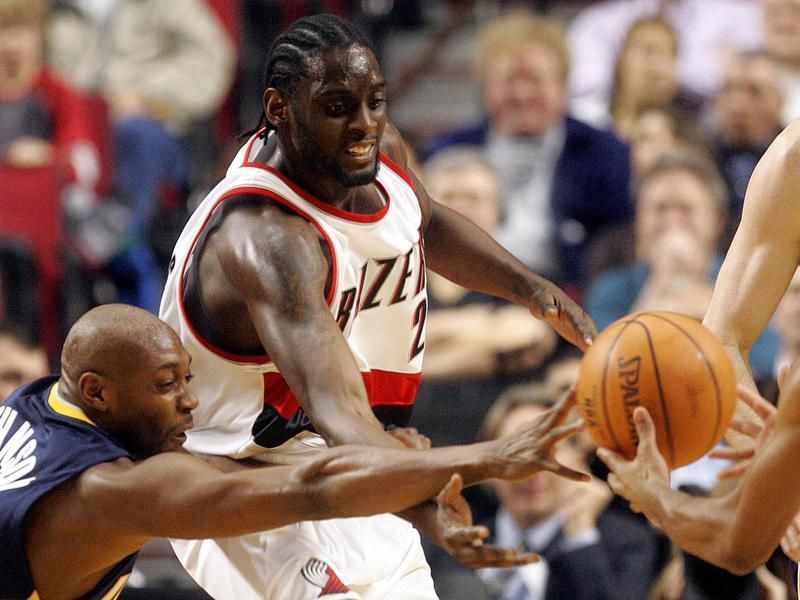
Miles became a rather controversial member of the team, especially after his well-publicized confrontation with head coach Maurice Cheeks during the 2004-2005 season. A serious knee injury derailed his career during the 2005-2006 season and caused him to miss the 2006-2007 and 2007-2008 seasons. He also faced a 10-game suspension due to a violation of the NBA’s substance abuse policy. He tried to make a comeback through the Memphis Grizzlies in 2009, but only managed to play 34 games.
22. Hedo Turkoglu
Year: 2009
Team: Toronto Raptors
Contract: 5 years, $53 million
Return on investment: 74 G, 11.3 PPG, 4.6 RPG, 4.1 APG, .409 FG%
Hedo Turkoglu was offered a five-year, $53 million contract after Toronto Raptors General Manager Bryan Colangelo noticed his impressive performance at the 2009 NBA Finals. His move to the Raptors was part of a four-team deal that also involved the Orlando Magic (his team at the time), the Dallas Mavericks, and the Memphis Grizzlies.
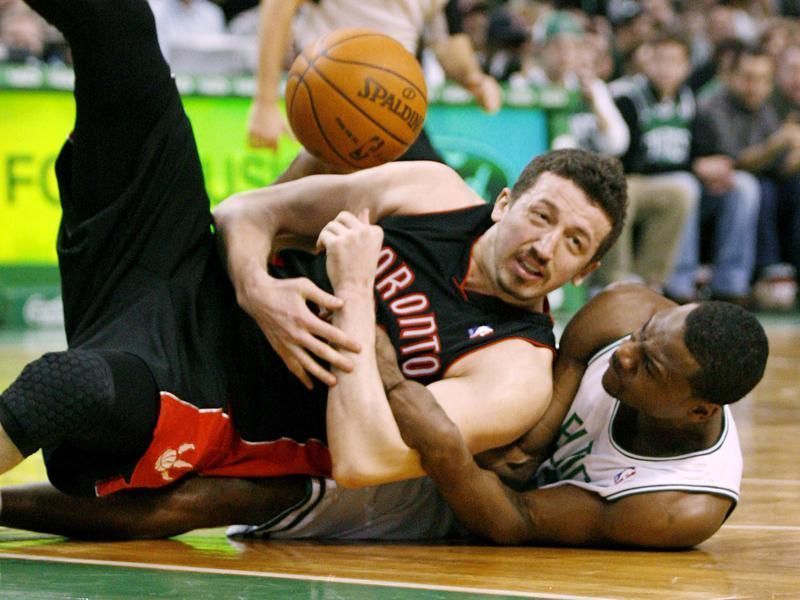
Turkoglu’s move to the Raptors did not turn out as well as everyone had hoped. He was unable to adapt to his new teammates and found it difficult to adjust to his new role as the starting point guard. He became lazy and was far from the player that he once was. He briefly joined the Phoenix Suns before returning to the Orlando Magic in 2010.
21. Bobby Simmons
Year: 2005
Team: Milwaukee Bucks
Contract: 5 years, $47 million
Return on investment: 145 G, 10.6 PPG, 3.9 RPG, 1.7 APG, .441 FG%
Bobby Simmons gave a consistently stellar performance during his time with the Los Angeles Clippers, scoring an average of 16.4 points per game in the 2004-2005 season. This was also when he was named the NBA’s Most Improved Player. As much as the Clippers wanted him to stay, he was offered a $47 million deal by the Milwaukee Bucks in 2005.
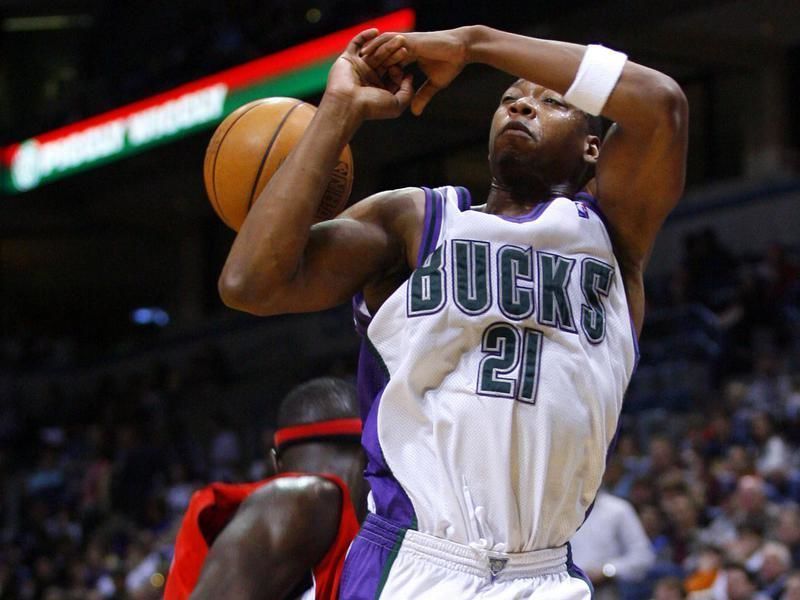
Although he had a decent first season with the Bucks, Simmons suffered a devastating ankle injury which caused him to miss the entire 2006-2007 season. When he returned to the court, he was no longer able to play with the same intensity he used to. As a result, Simmons was later transferred to the New Jersey Nets in 2008.
20. Timofey Mozgov
Year: 2016
Team: Los Angeles Lakers
Contract: 4 years, $64 million
Return on investment: 54 G, 7.4 PPG, 4.9 RPG, 0.8 APG, .515 FG%
Like a number of other teams, the Los Angeles Lakers went on a massive spending spree in 2016. Timofey Mozgov, who started his basketball career in Russia, joined the NBA through the New York Knicks in 2010. He went on to play for two more teams before joining the Lakers through a $64 million deal in 2016.
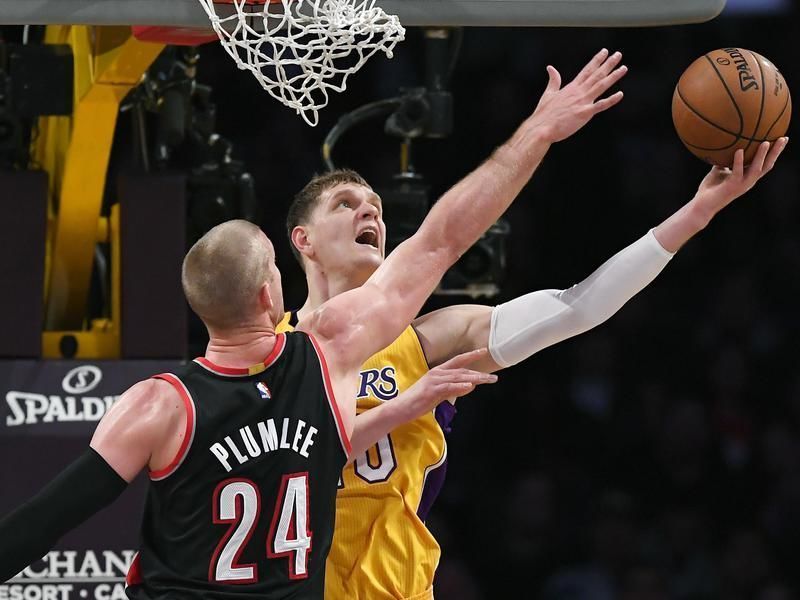
It remains unclear why he was ever given such an expensive contract in the first place. Even before joining the team, Mozgov was an average bench warmer with a mediocre performance. It didn’t take long before the Lakers gave up on him. Indeed Mzgov was let go after just one season. He went on to join the Brooklyn Nets and then the Orlando Magic, lasting only a year in each team.
19. Brian Grant
Year: 2000
Team: Miami Heat
Contract: 7 years, $86 million
Return on investment: 312 G, 11.0 PPG, 8.5 RPG, 1.3 APG, .482 FG%
After a relatively successful stint as a forward and strong defender and rebounder for the Portland Trail Blazers in the late 1990s, Brian Grant began to seek greener pastures. He was offered $86 million by the Miami Heat and accepted without much hesitation.
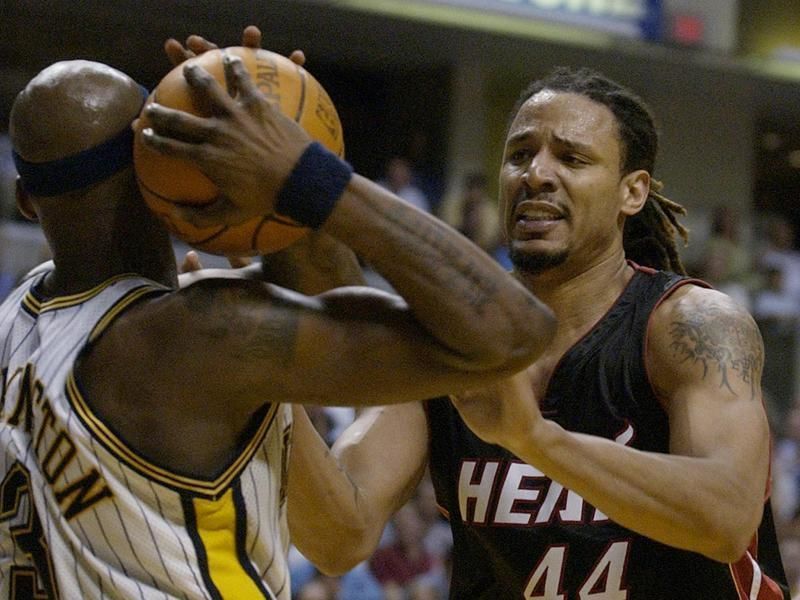
While he delivered a fairly decent performance and kept his stats steady, it was not enough to justify the amount he was being paid. In 2004, he was traded off to the Los Angeles Lakers along with Lamar Odom, Caron Butler, and a third player in exchange for Shaquille O’Neal.
18. Baron Davis
Year: 2008
Team: Los Angeles Clippers
Contract: 5 years, $65 million
Return on investment: 183 G, 14.6 PPG, 3.4 RPG, 7.6 APG, .394 FG%
Baron Davis was a key player for the Golden State Warriors between 2005-2008. He famously led the team to victory against the Dallas Mavericks in a regular-season series in 2007, making them the first #8 seed team to beat a #1 seed. In 2008, he agreed to a contract to play for his hometown team, the Los Angeles Clippers.
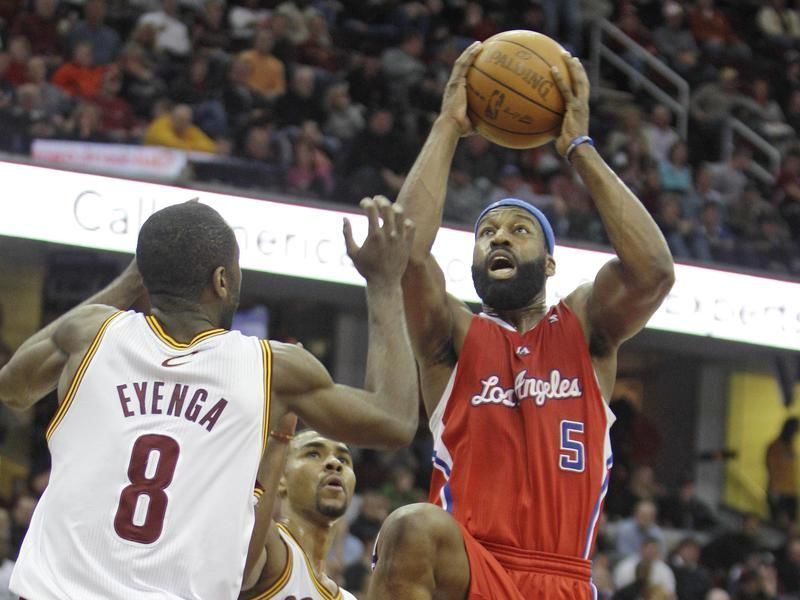
His success with the Warriors, however, did not translate to similar stats with the Clippers. He took his first year on the team for granted and was not in good shape most of the time. Davis was released by the Clippers just over halfway into his contract and ended up joining the Cleveland Cavaliers.
17. Ben Wallace
Year: 2006
Team: Chicago Bulls
Contract: 4 years, $60 million
Return on investment: 127 G, 5.9 PPG, 9.9 RPG, 2.1 APG, .422 FG%
Although Ben Wallace wasn’t much of a scorer, he was a reliable defender and rebounder during his six seasons with the Detroit Pistons. Despite a slight decline in his performance, he was offered a $60 million contract by the Chicago Bulls and joined the team in 2006.
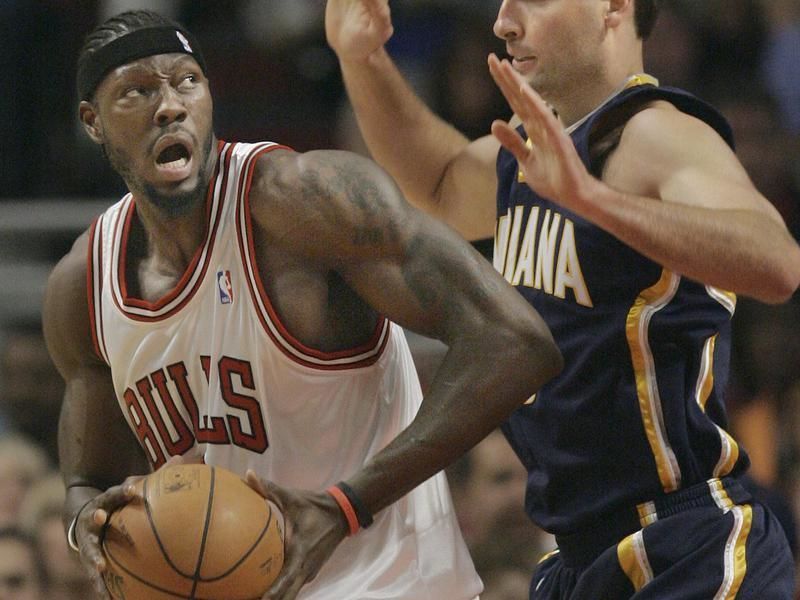
After signing with the Bulls, his performance began to decline even faster. His stats during that first season were a lot worse than any of his previous seasons in Detroit. By his second year, Davis’ per-game averages in points, rebounds, and blocks dropped even further. After just one-and-a-half seasons, he was traded to the Cleveland Cavaliers.
16. Amar’e Stoudemire
Year: 2010
Team: New York Knicks
Contract: 5 years, $100 million
Return on investment: 255 G, 17.3 PPG, 6.7 RPG, 1.3 APG, .518 FG%
Amar’e Stoudemire was a strong player for the Phoenix Suns from 2002-2010. While he did have his lows during his time there, he was known to be a dependable member of the team, working well with the likes of Shaquille O’Neal and Steve Nash. When he joined the Knicks in 2010, it seemed like he was going to maintain his momentum.
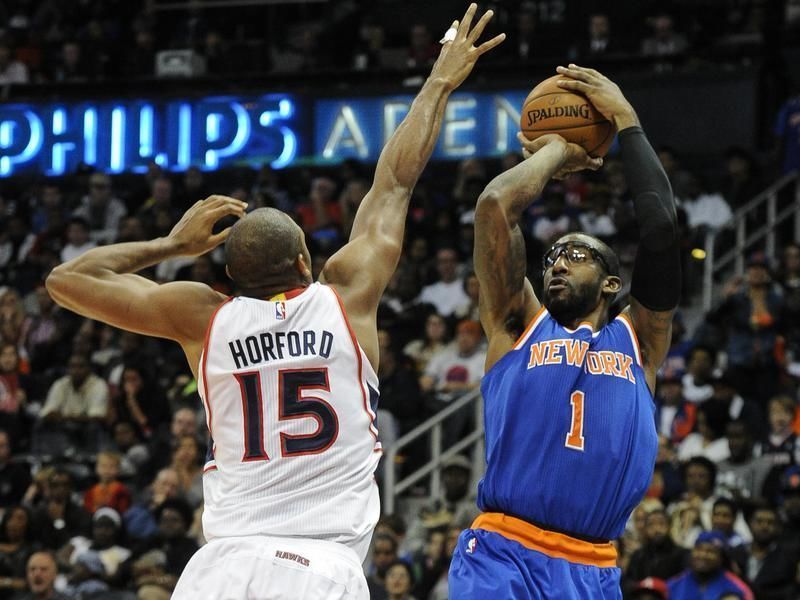
During his first year, Stoudemire had an average of 25.3 points, 8.2 rebounds, and 1.9 blocks in 78 games. Sadly, this was the high point of his stint with the Knicks, and it all went downhill from there. He was severely affected by the death of his brother and had to deal with poor conditioning and a back injury during the 2011-2012 season. His stats continued to drop in subsequent years, so the Knicks bought out the rest of his contract during his fourth season.
15. Jim McIlvaine
Year: 1996
Team: Seattle SuperSonics
Contract: 7 years, $34 million
Return on investment: 160 GM, 3.5 PPG, 3.7 RPG, 0.3 APG, .463 FG%
1996 is remembered as the year the NBA started offering mega deals to its players. While Jim McIlvaine’s $34 million deal doesn’t seem like much anymore, at the time, it allowed him to earn more than Larry Bird and Magic Johnson did at the height of their careers. Compared to other players like Shaquille O’Neal and Alonzo Mourning, who also received huge offers during that year, Jim McIlvaine seemed like an odd choice.
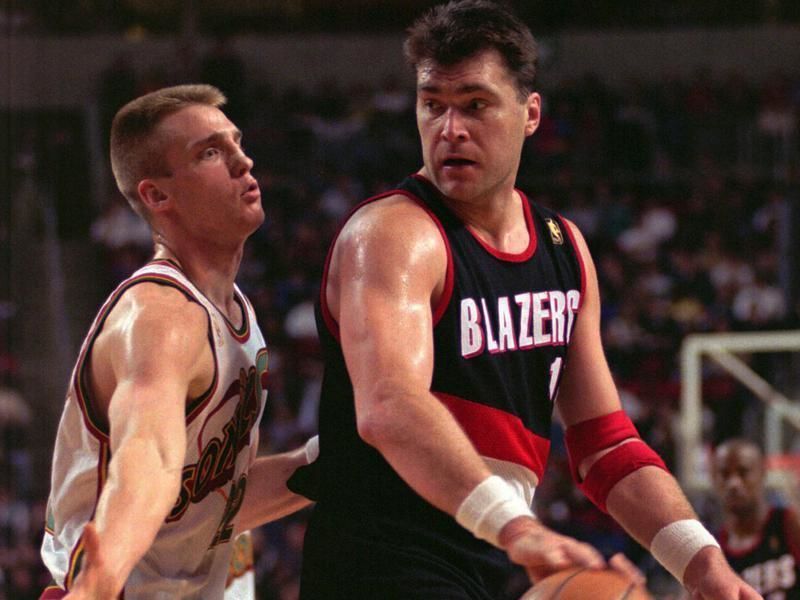
Prior to joining the SuperSonics, he had a rather lackluster career with the Washington Bullets (now known as the Washington Wizards) and only managed to break the 10 point mark in two games. He eventually moved on to join the New Jersey Nets, a team with whom he also had a brief and lackluster career.
14. Juwan Howard
Year: 1996
Team: Washington Bullets
Contract: 7 years, $105 million
Return on investment: 264 G, 17.6 PPG, 7.1 RPG, 3.3 APG, .472 FG%
Juwan Howard was one of the players, along with Shaquille O’Neal and Alonzo Mourning, who signed a deal worth at least $105 million in 1996. However, he actually signed his contract ahead of the other two players, making him the first NBA player to sign a contract that was worth more than $100 million.
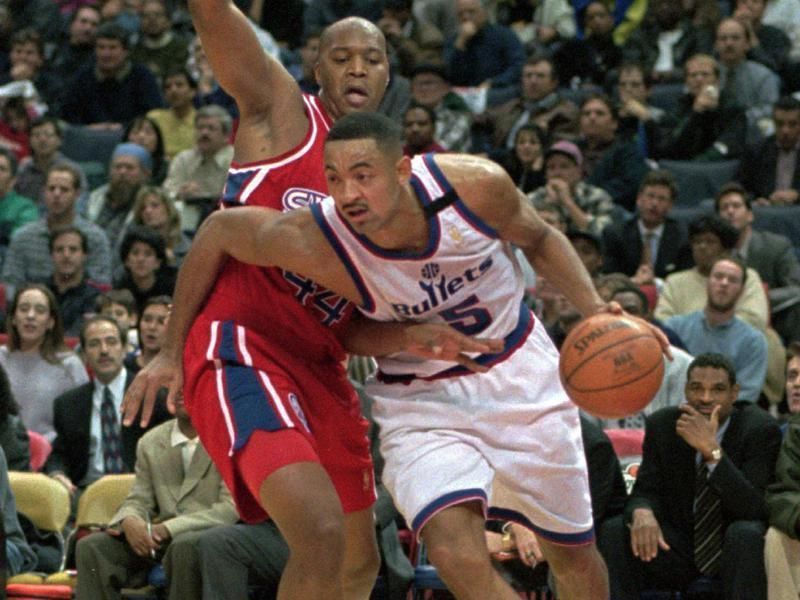
While O’Neal and Mourning proved their worth as great players, Howard was decent at best. His most impressive season with the Bullets was actually the one he played before signing the $105 million deal, and he never got to play at the same level again. He was eventually released in 2001, moving on to the Dallas Mavericks.
13. Allan Houston
Year: 2001
Team: New York Knicks
Contract: 6 years, $101 million
Return on investment: 229 G, 20.0 PPG, 2.7 RPG, 2.4 APG, .438 FG%
Allan Houston is hardly a mediocre player. In fact, he ranked as one of the top 10 scorers in NBA history. Houston also played a key role in a Game 5 buzzer-beater where the Knicks defeated the Heat in the opening round of the 1999 playoffs. In 2001, Houston was rewarded with a $101 million contract.
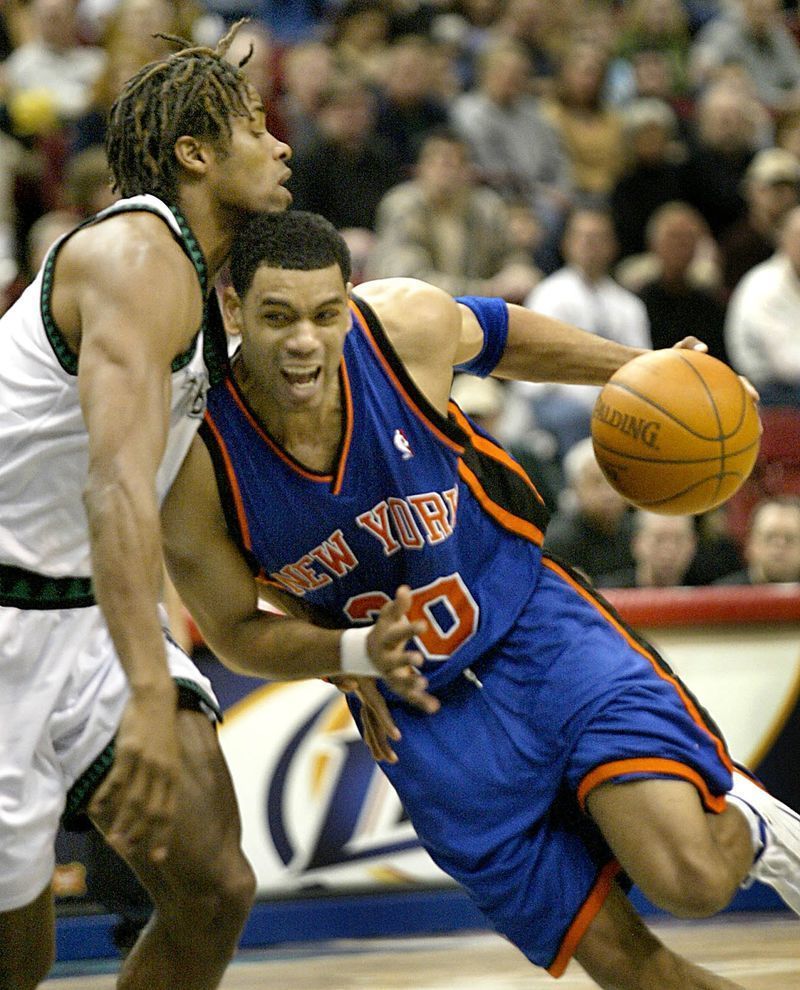
While he performed well during the first two years, Houston’s career took a nosedive afterward. He suffered from a serious knee injury, causing him to announce his retirement in 2005. However, he continued to be paid in 2006 and 2007 and was the NBA’s second-highest-paid player, despite not playing a single game.
12. Larry Hughes
Year: 2005
Team: Cleveland Cavaliers
Contract: 5 years, $70 million
Return on investment: 146 G, 14.3 PPG, 3.9 RPG, 3.3 APG, .396 FG%
The Cleveland Cavaliers brought in Larry Hughes in 2005, hoping to get a great scorer and defender who would also be able to complement LeBron James. Even before the signing of his deal, however, there was some buzz in the media about Hughes not being a good match for the team. The Cavaliers paid no attention and proceeded with the signing.
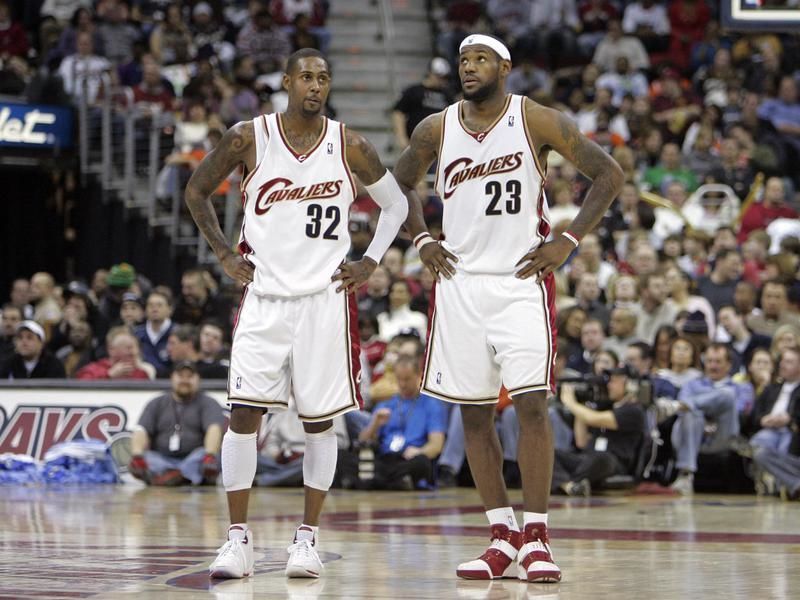
As some people have pointed out, Hughes did not fit in well with the Cavaliers. He didn’t seem to like playing second fiddle to LeBron and would often argue with him. He didn’t get along well with the rest of the team either and was unable to shoot more than 42% from the field. Hughes ended up leaving the team after just two seasons.
11. Vin Baker
Year: 1999
Team: Seattle SuperSonics
Contract: 7 years, $86 million
Return on investment: 326 G, 15.5 PPG, 6.9 RPG, 1.6 APG, .477 FG%
Vin Baker was one of the NBA’s best players at the height of his career. He was a four-time All-Star who appeared in almost every game between 1994 and 1998. When he was offered the large sum of $86 million by the Seattle SuperSonics in 1999, people thought that he deserved it.
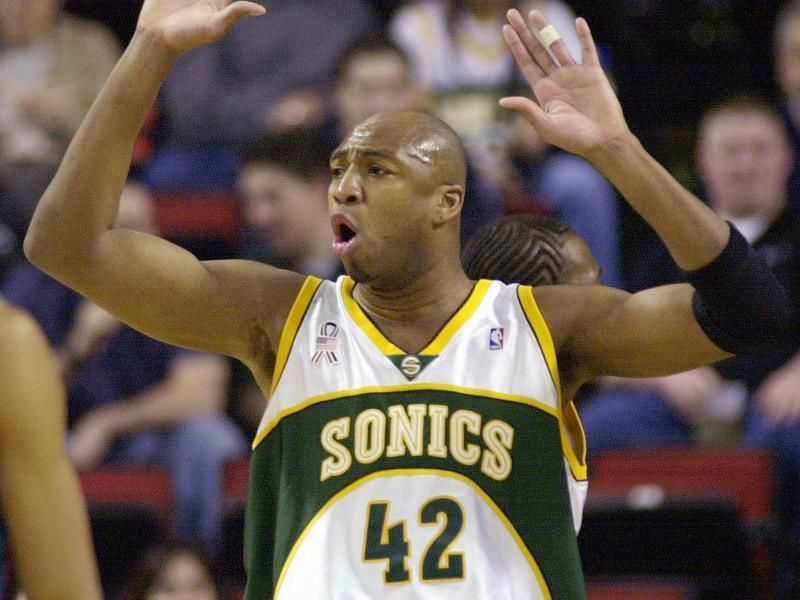
After signing his contract, however, Baker failed to live up to everyone’s expectations. He fell out of shape and dealt with injuries, causing his performance to steadily drop. He moved to the Bolton Celtics in 2002 and jumped from team to team after that. However, he never quite regained his form. Baker lost nearly $100 million and struggled with alcoholism and depression, though he is currently in the process of rebuilding his life.
10. Bryant Reeves
Year: 1997
Team: Vancouver Grizzlies
Contract: 6 years, $61.8 million
Return on investment: 243 G, 11.2 PPG, 6.4 RPG, 1.5 APG, .477 FG%
Bryant Reeves was a promising young athlete in the early years of his career. He was the Vancouver Grizzlies’ first draft pick and played well during his first and second seasons, where he averaged 13 and 16 points per game, respectively.
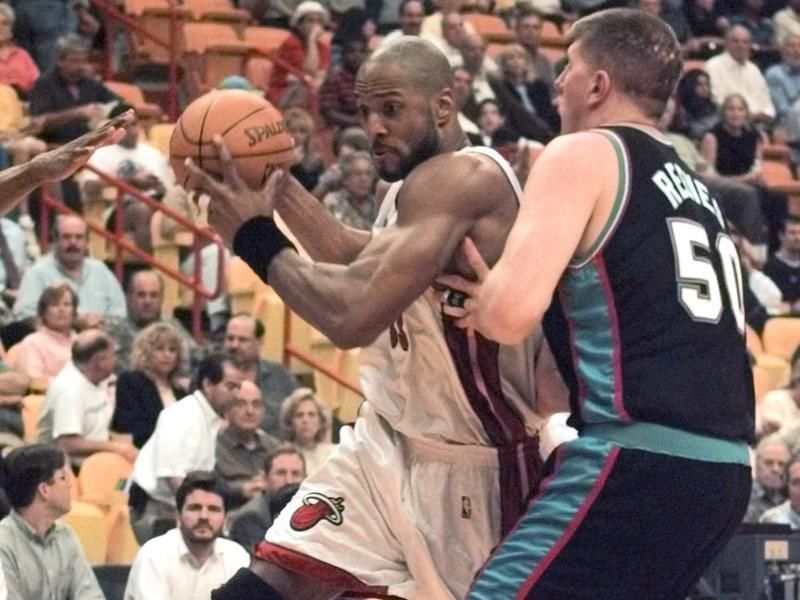
After signing a huge contract with the Grizzlies in 1997, his performance began to decline. Reeves underwent knee surgery in 1999 and experienced back problems that forced him into early retirement in 2002. He only managed to last two seasons into his six-year deal.
9. Andris Biedrins
Year: 2008
Team: Golden State Warriors
Contract: 6 years, $54 million
Return on investment: 254 G, 5.1 PPG, 6.7 RPG, 1.1 APG, .568 FG%
Andris Biedrins joined the league as a promising 18-year-old. As time wore on, he proved to be a highly-skilled player. With a strong rebound and defensive game, he quickly became one of the best players in the league. In 2008, he signed a $54 million deal with the Golden State Warriors and, at first, it seemed like he was certainly worth the price tag.
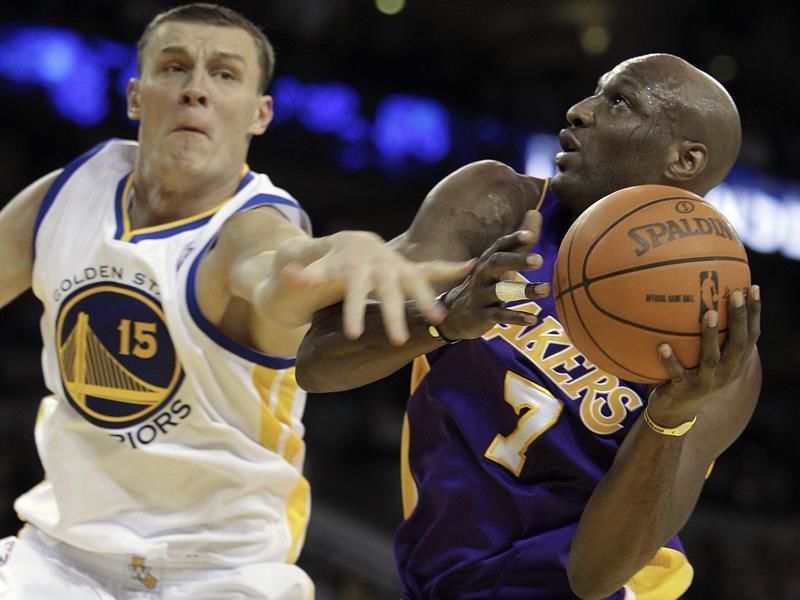
A few years after signing this contract, a string of injuries derailed his career with groin surgery being the final blow. At one point, he had an average of just five points per game and only made 32% of his free throws. His struggles continued over the years, and he was forced to leave the NBA at 28 years of age.
8. Rashard Lewis
Year: 2007
Team: Orlando Magic
Contract: 6 years, $118 million
Return on investment: 257 G, 16.3 PPG, 5.1 RPG, 2.1 APG, .442 FG%
Rashard Lewis gave a particularly strong performance when playing for the Seattle SuperSonics in the 2006-2007 season, averaging 22.4 points, 6.6 rebounds, and 39% shooting from long range. While he also had an above-average efficiency rating, this hardly justifies the $118 million contract that was awarded to him by the Orlando Magic in 2007.
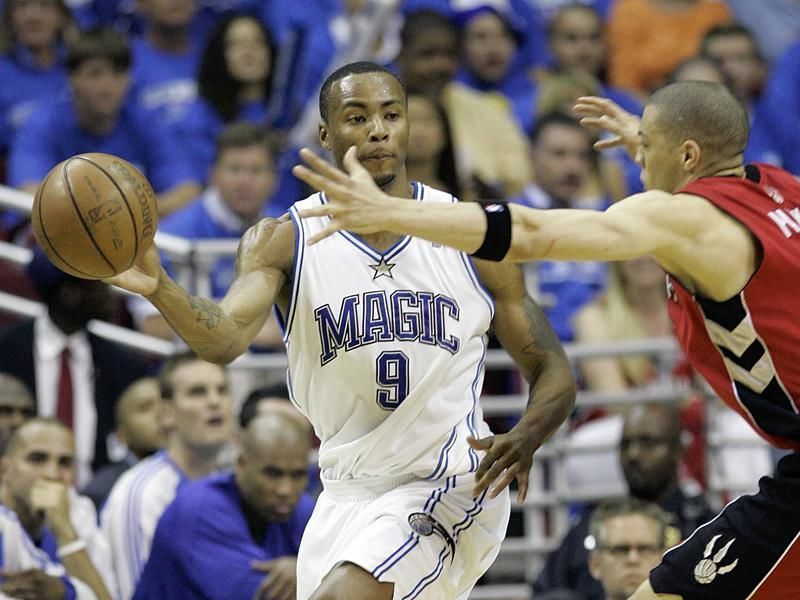
Lewis had a notable decline in his performance almost immediately after joining the Magic. His shooting percentage and efficiency rating fell below the league average and he missed at least 25 games. His average points per game also dropped to a low of 12.2 before he was finally let go. Despite all this, he managed to make an All-Star team, and he was an integral part of the Orlando team that made it to the NBA Finals in 2009.
7. Emeka Okafor
Year: 2008
Team: Charlotte Bobcats
Contract: 6 years, $72 million
Return on investment: 82 G, 13.2 PPG, 10.1 RPG, 0.6 APG, .561 FG%
Emeka Okafor began his NBA career in 2004 with the Charlotte Bobcats. While he had a promising start, Okafor would go on to prove that while he was a solid player, he wasn’t really a spectacular one. Still, the Bobcats decided to re-sign him with a large contract in 2008.
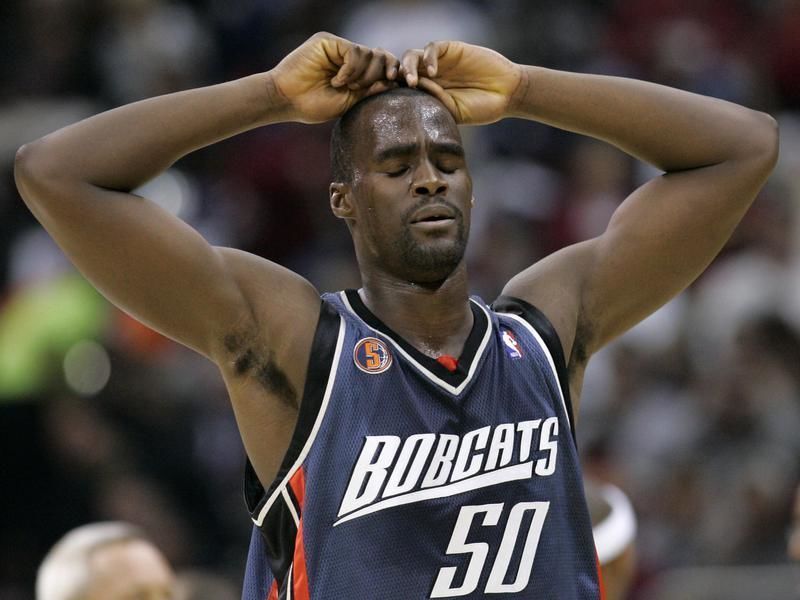
In what appears to be a terrible case of buyer’s remorse, the Bobcats proceeded to include him in every single trade discussion they had afterward. Okafor also never really worked well with the new coach, Larry Brown, which put him in an even more difficult spot. In 2009, he was finally traded off to the New Orleans Hornets, where his stats continued to decline.
6. Penny Hardaway
Year: 1999
Team: Phoenix Suns
Contract: 7 years, $87 million
Return on investment: 236 G, 12.4 PPG, 4.5 RPG, 4.2 APG, .444 FG%
Penny Hardaway had the makings of a great NBA star. He was an excellent college basketball player in Memphis and had three impressive seasons alongside Shaquille O’Neal in the Orlando Magic, where he averaged 19.5 points, 7.0 assists, and 4.7 rebounds. His performance began to decline following a knee injury in 1997, but this didn’t stop the Phoenix Suns from offering him a huge contract in 1999.
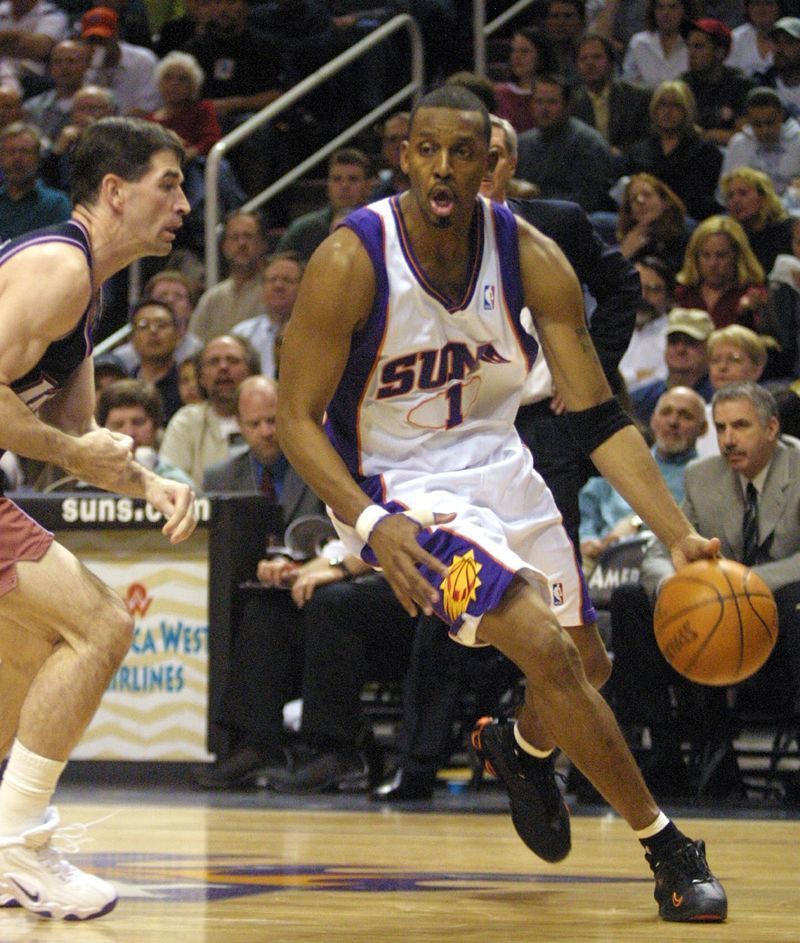
Even though he had a pretty solid first season with the Suns, Hardaway’s performance further declined after two knee surgeries in 2000. His performance never fully recovered, though he did get signed by the New York Knicks in 2004. Following his departure, the Suns replaced him with Steve Nash, who helped them become a relevant team again.
5. Luol Deng
Year: 2016
Team: Los Angeles Lakers
Contract: 4 years, $72 million
Return on investment: 57 G, 7.5 PPG, 5.2 RPG, 1.3 APG, .387 FG%
Having signed a costly $64 million deal with Timofey Mozgov, the LA Lakers took on an even bigger $72 million contract with Lulo Deng the very next day. While Deng had a solid reputation as a strong defender during his prime, it was clear that those days were long gone by the time he signed his contract with the Lakers.
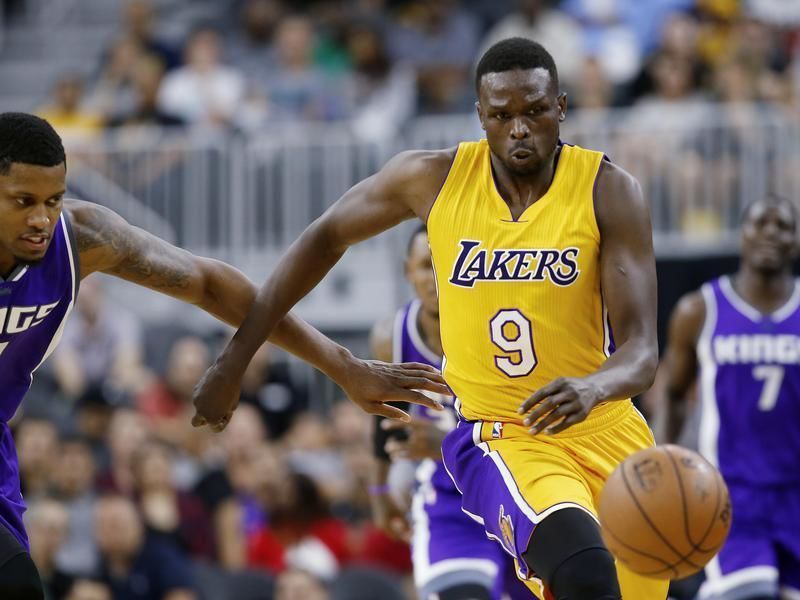
Just like what happened to Mozgov, it didn’t take long for them to realize their mistake in offering Deng a mega deal. He proved to be lackluster on the court, and in one of his seasons only played a single game. For the rest of the year, he remained on the sidelines. Signing a contract proved to be a costly mistake for the Lakers, as Deng continued to be paid despite contributing little to the team.
4. Joakim Noah
Year: 2016
Team: New York Knicks
Contract: 4 years, $72 million
Return on investment: 53 G, 4.6 PPG, 7.9 RPG, 2.0 APG, .491 FG%
Joakim Noah was another player who got caught up in the strange and disastrous season of insanely high contracts that occurred in 2016. Noah was an effective player at the height of his career (between 2009 and 2014). If this $72 million deal had been offered to him during that time, no one would have questioned it. However, it became clear that when this deal was offered, it was too much, too late.
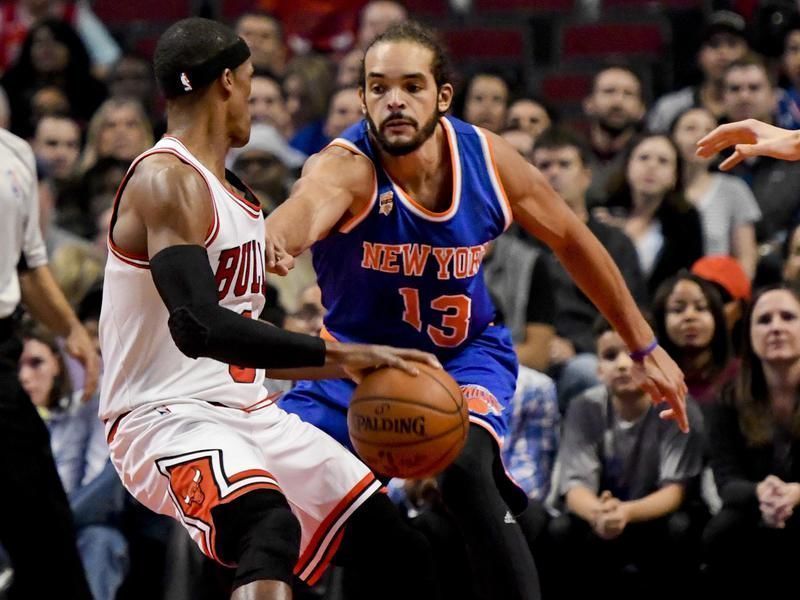
Many analysts and fans noticed that Noah had physically deteriorated by 2015. He had a series of shoulder injuries which caused him to make only 25 appearances on the court. His starts further declined in his first two years with the Knicks and he was suspended by the NBA for part of the 2017-2018 season for violating an anti-drug policy. He was then placed on indefinite leave following a feud with then-coach Jeff Hornacek. By this time, his individual contract had earned a reputation as one of the worst ever signed.
3. Chandler Parsons
Year: 2016
Team: Memphis Grizzlies
Contract: 4 years, $94 million
Return on investment: 95 G, 7.2 PPG, 2.6 RPG, 1.8 APG, .393 FG%
Chandler Parson was yet another beneficiary of the now-infamous 2016 spending spree by several NBA teams. His $94 million contract made him one of the highest-paid NBA players at the time. The Grizzlies also committed to increasing his salary by $1 million per year for the next three years.
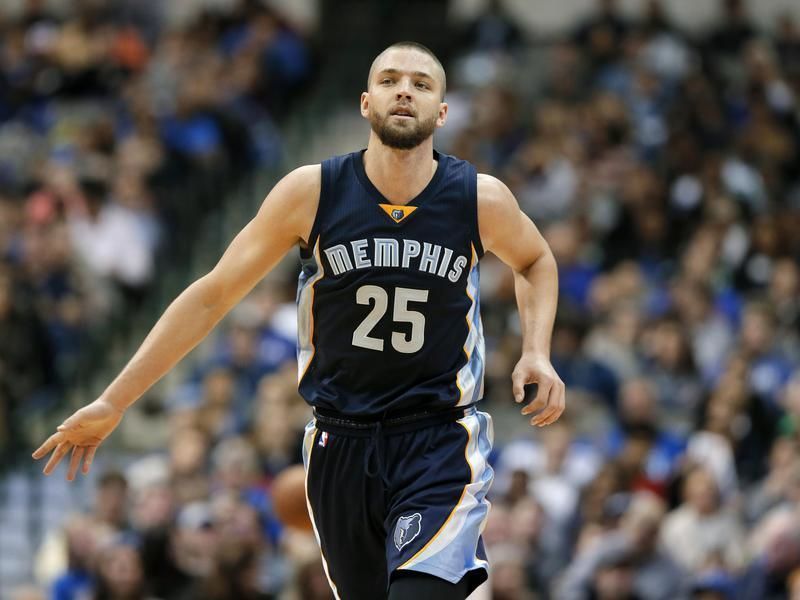
While he was a decent player during his time with the Houston Rockets, knee injuries negatively affected his stint with the Dallas Mavericks. The Grizzlies took a chance on him anyway in 2016, and this proved to be a huge mistake. He was never really an All-Star, though he did have an above-average efficiency rating. Parsons’ persistent knee injuries also resulted in him appearing in just 70 games over two seasons. In July 2016, he was handed over to the Atlanta Hawks.
2. Gilbert Arenas
Year: 2008
Team: Washington Wizards
Contract: 6 years, $111 million
Return on investment: 68 G, 15.0 PPG, 3.3 RPG, 5.0 APG, .386 FG%
At one point, Gilbert Arenas was one of the league’s best players. The 2006-2007 season was a highlight of his career, and he was unstoppable during this time. He only managed to play eight games in the 2007-2008 season, but the Washington Wizards re-signed him anyway, to the tune of $111 million.
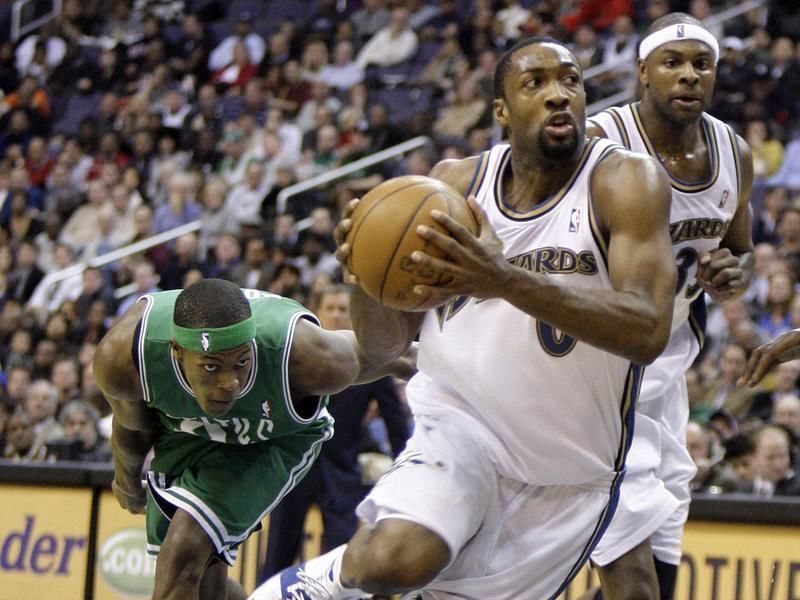
Arenas managed to play just two games in 2009. He was then suspended for an entire season when it was discovered that he was storing guns in his locker. Due to his injuries and the locker room incident, Arenas played less than 100 games across three seasons. He went on to join the Orlando Magic in 2010, followed by brief stints with the Memphis Grizzlies and the Shanghai Sharks between 2012 and 2013.
1. Raef Lafrentz
Year: 2002
Team: Dallas Mavericks
Contract: 7 years, $70 million
Return on investment: 69 G, 9.3 PPG, 4.8 RPG, 0.8 APG, .518 FG%
Raef Lafrentz was a promising young athlete when he began his NBA career with the Denver Nuggets in the late 1990s. He was a consistent three-point shooter and was able to pull in around eight rebounds per game. He seemed like a solid choice when the Dallas Mavericks offered him a long-term $70 million contract.
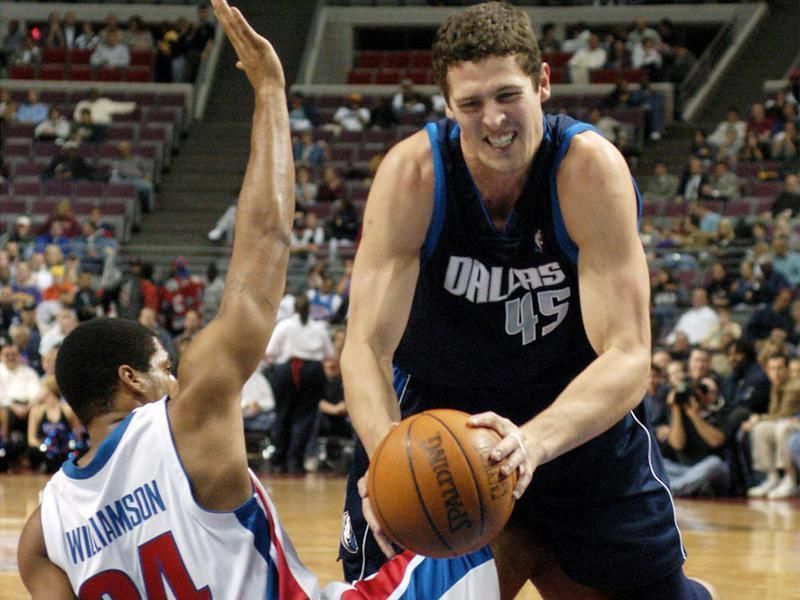
Unfortunately, the Mavericks failed to realize that a lot can happen in seven years. While he was a good player, his performance had begun to wane. This was aggravated by a string of injuries, causing him to become ineffective on the court. After just one season with the Mavericks, he was transferred to the Boston Celtics.

